Teaching
Over the course of the past 30 years my pedagogical practice has been deepened and enhanced by inclusion of experimentation and image-based assignments in a range of courses in philosophy and gender studies. This page gives a snapshot of some of those courses with selected syllabi, course notes, and student projects.
Overview
Materials
Close reading is an ancient method that dates back to the exegesis of religious texts such as the Torah, the Koran, and the Bible.. Today’s close reading methods are influenced by New Criticism, the French explication de texte, and the critical methods of poststructuralism, deconstruction, and reader-response theory. Close reading is characterized by an emphasis on particularity, with special attention to etymologies, syntax, rhythm, tone, style, punctuation, and other details of a writer’s craft. Philosophical close reading involves making connections between these textual details and conceptual claims. For a recent history of close reading and a helpful bibliography of works on close reading see John Guillory’s On Close Reading (2025).
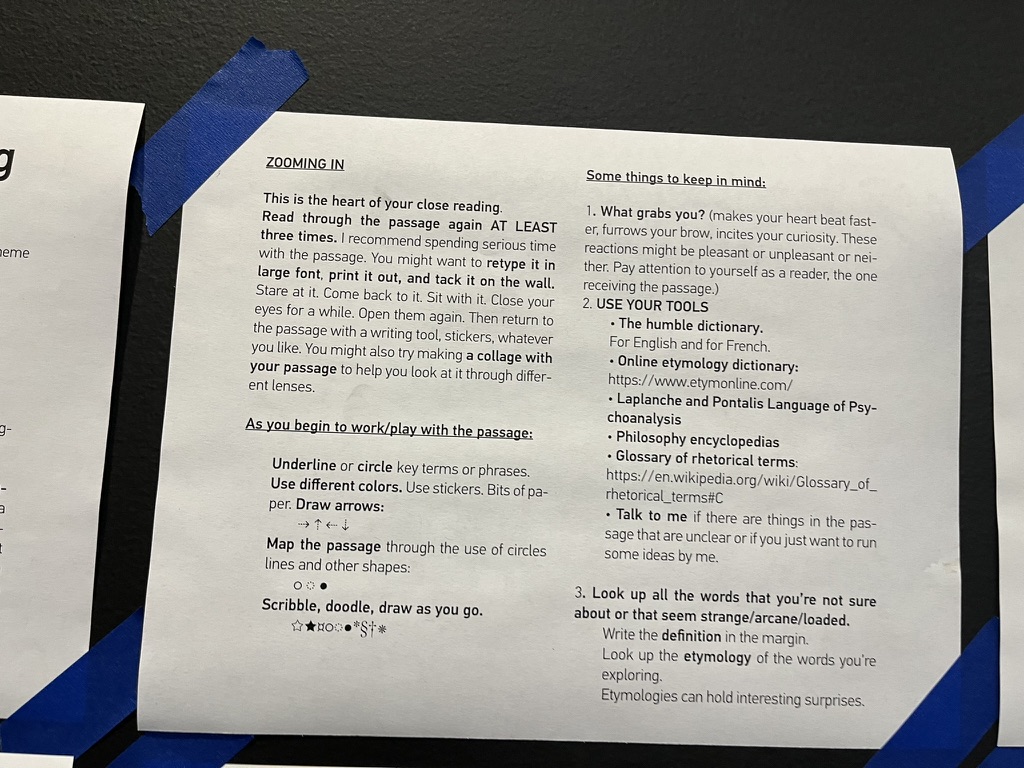
In 13 Ways of Looking, Jenny Odell writes: “what I love about collage: it’s not something from nothing, but something from something. The ingredients don’t just hang together in a new way; they truly become something else.” I have found this insight into collage to be helpful as a pedagogical practice. Assigning students both digital and analog collage assignments, including individual collages as well as group zines, has generated new ways of thinking about complex philosophical material.
Inspired by a range of practices in experimental writing, I have found these techniques to be helpful tools in the classroom as well. Attention to experimentation not only opens up new ways of thinking; it also inspires a sense of play that engages the students in ways not often accessed in university classrooms. I have found it allows them to find joy in making. Many of these exercises are drawn from surrealism, OULIPO, and other experimental writing traditions.
Abecedary: an inscription consisting of letters of the alphabet, almost always in order. Typically they are practical exercises (see, for example, childrens’ ABC books).
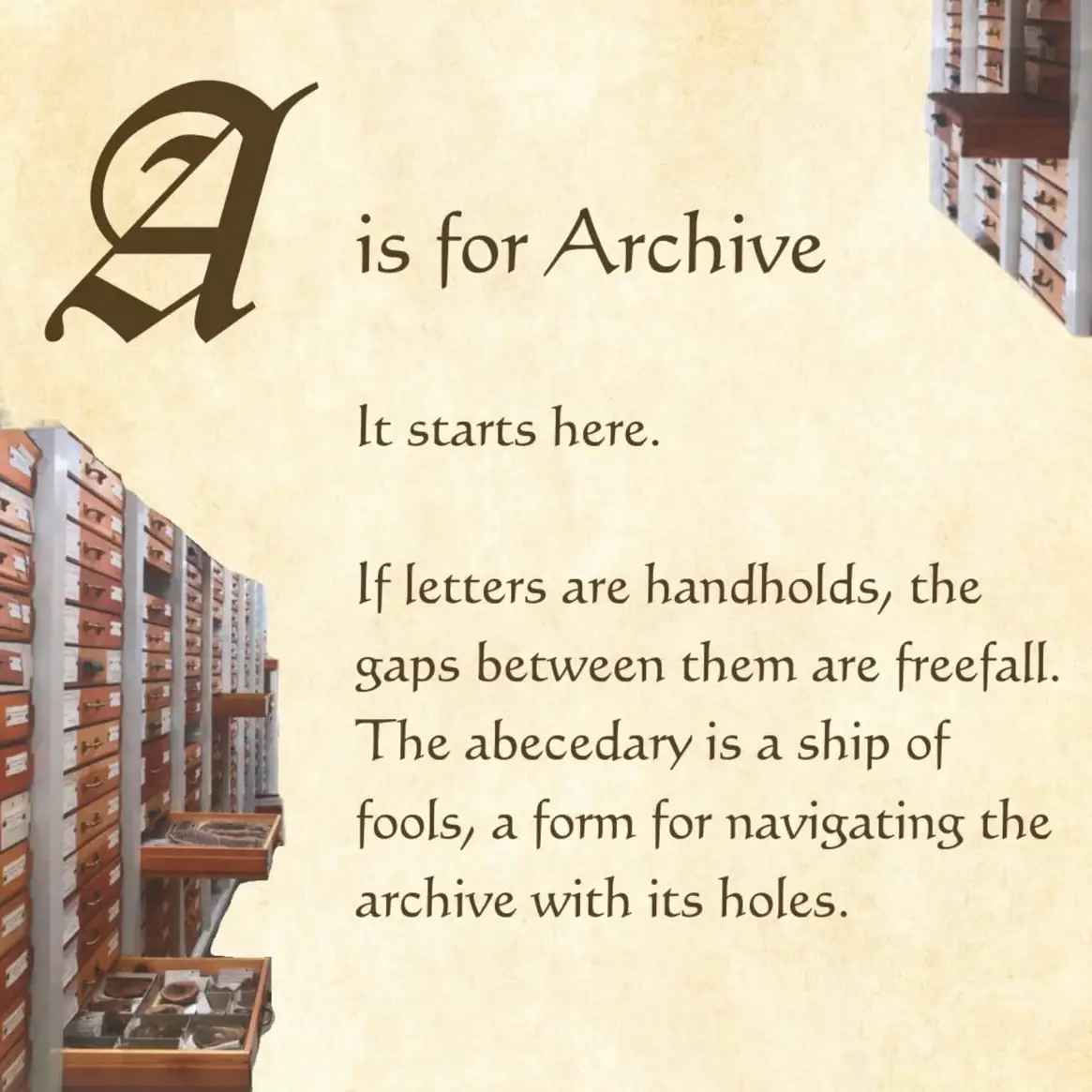
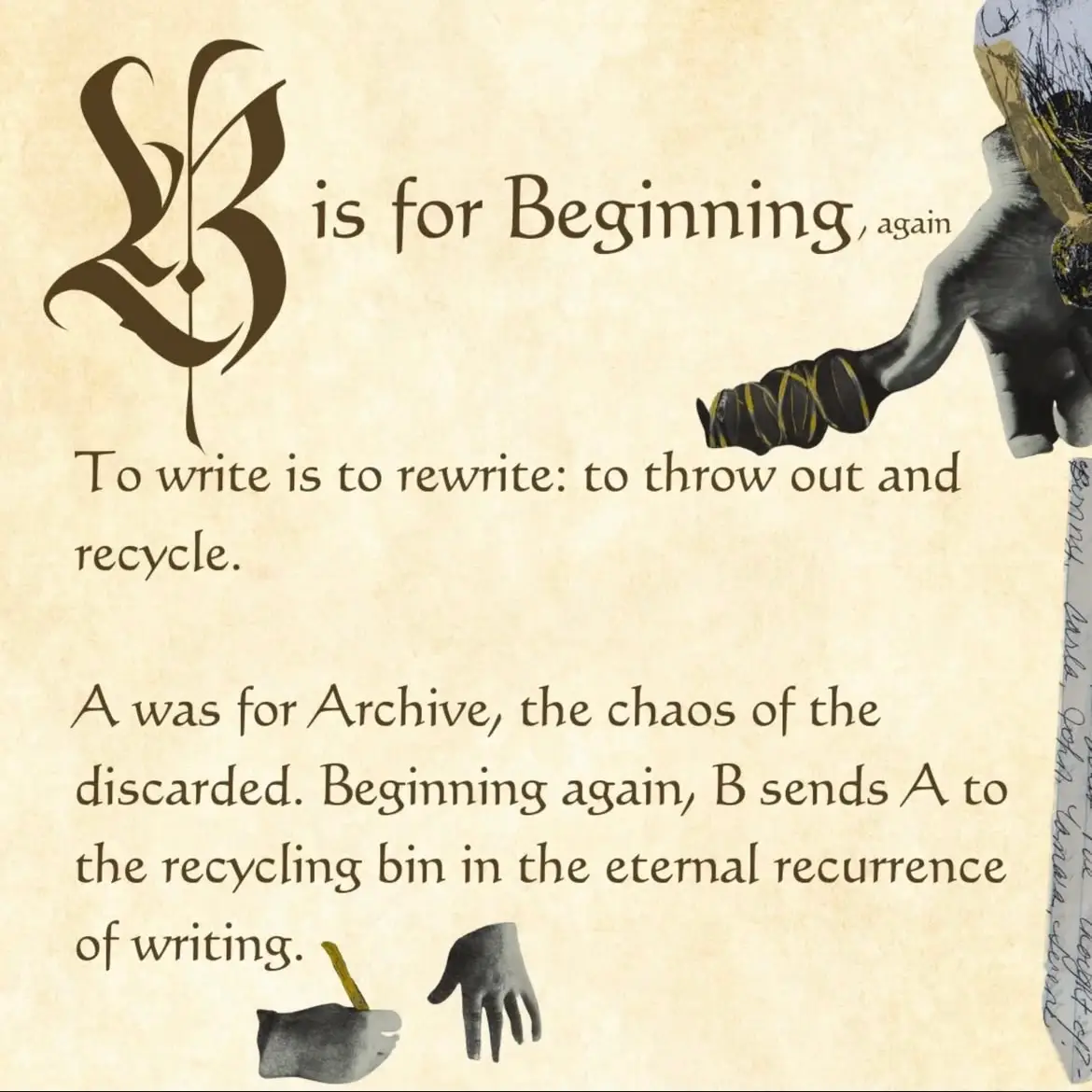
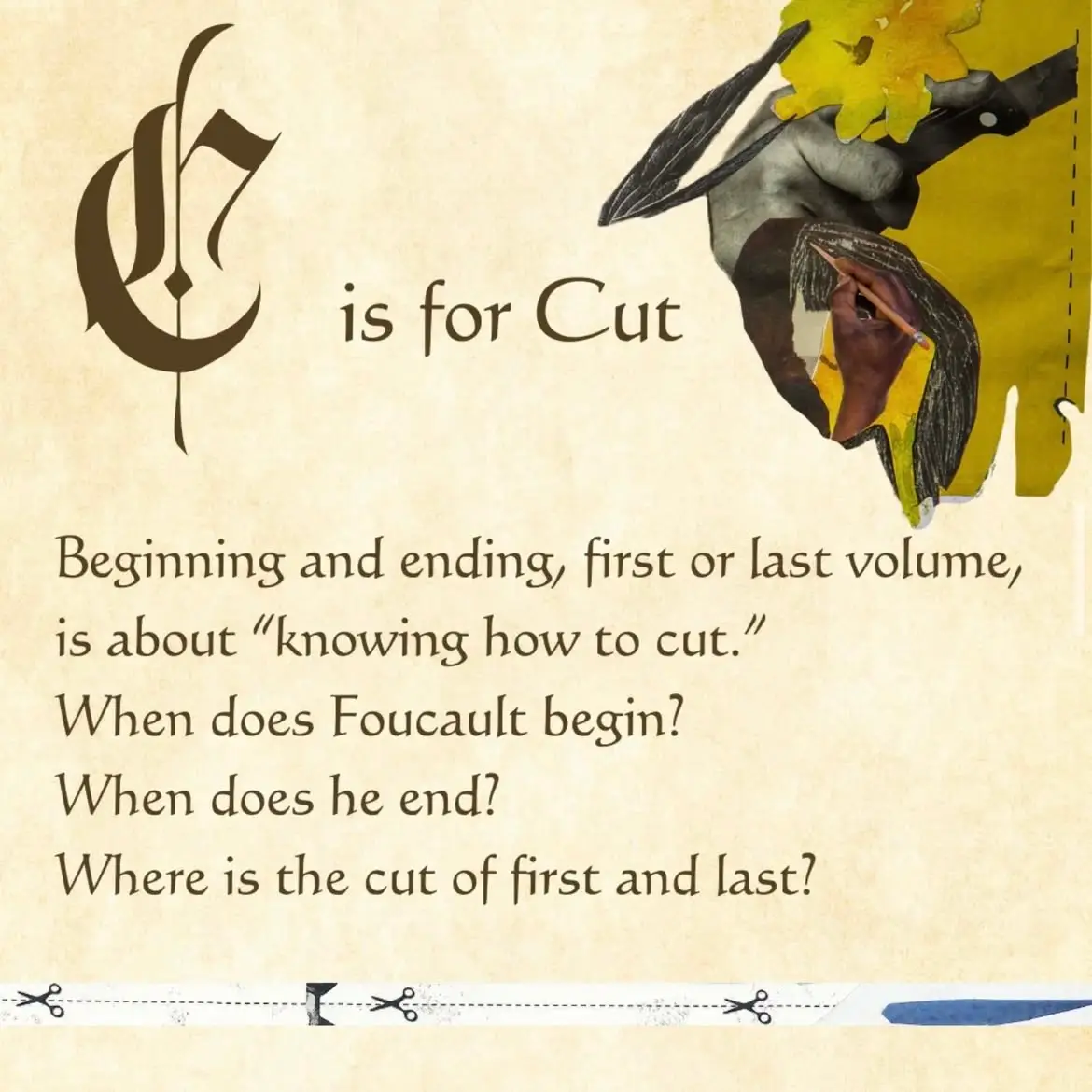
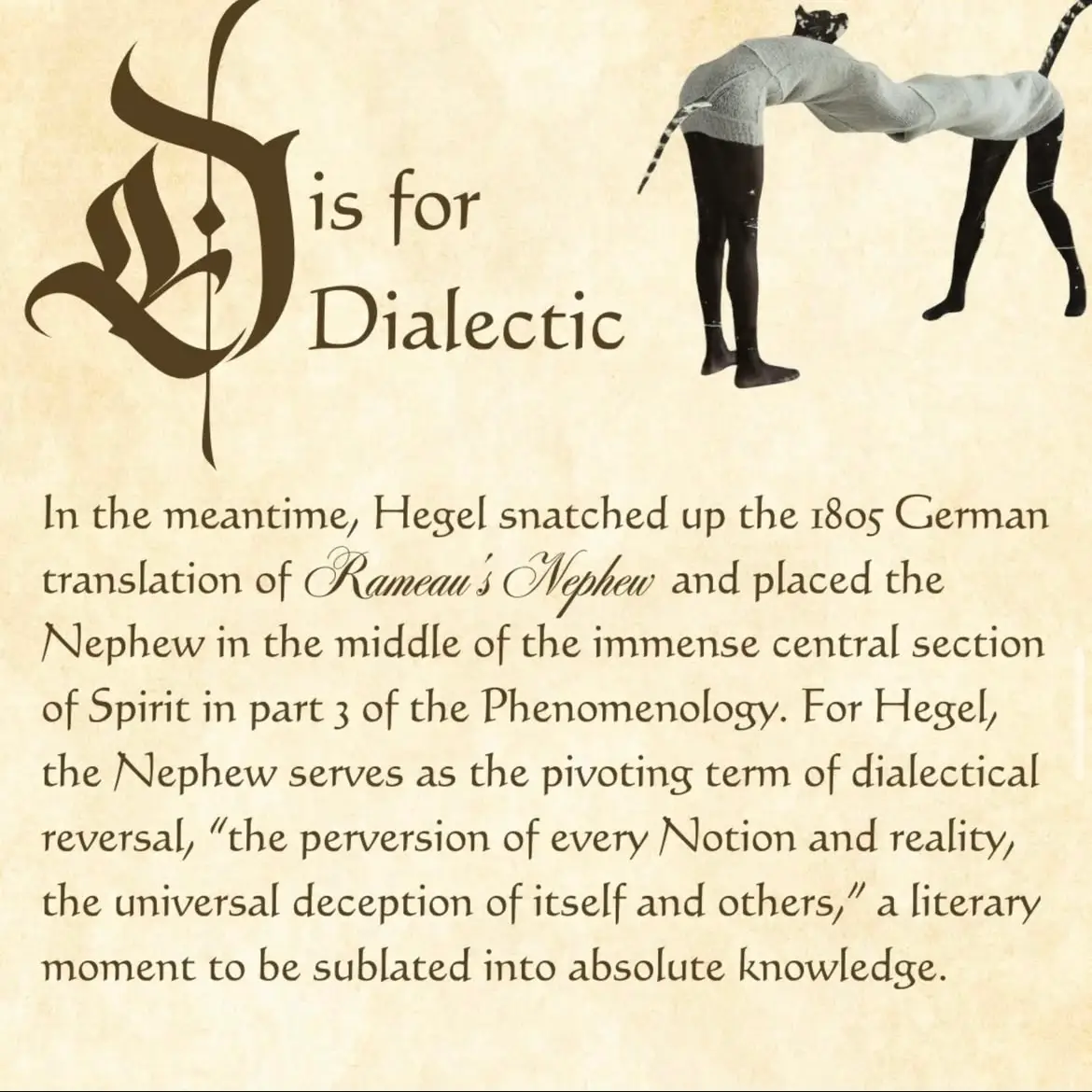
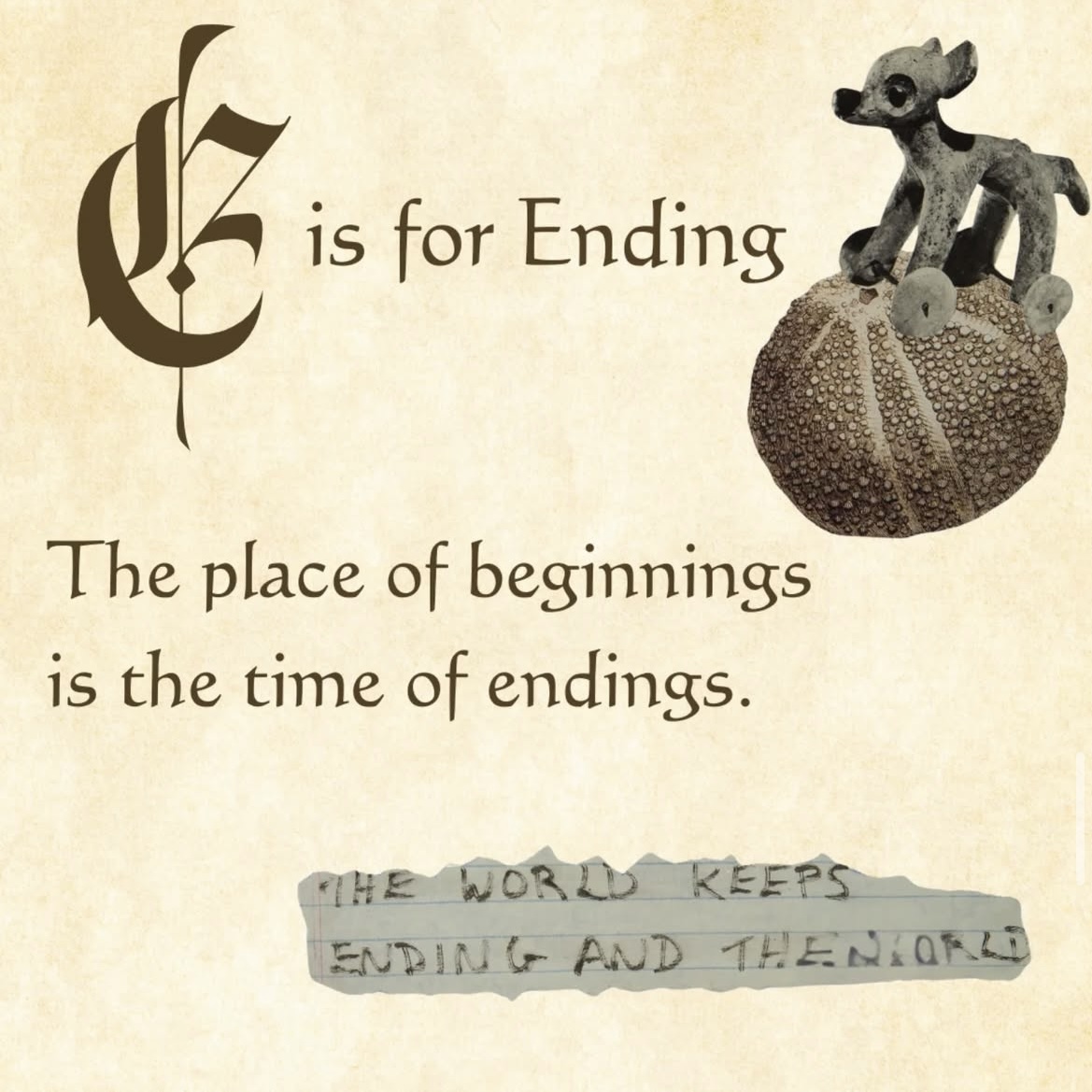
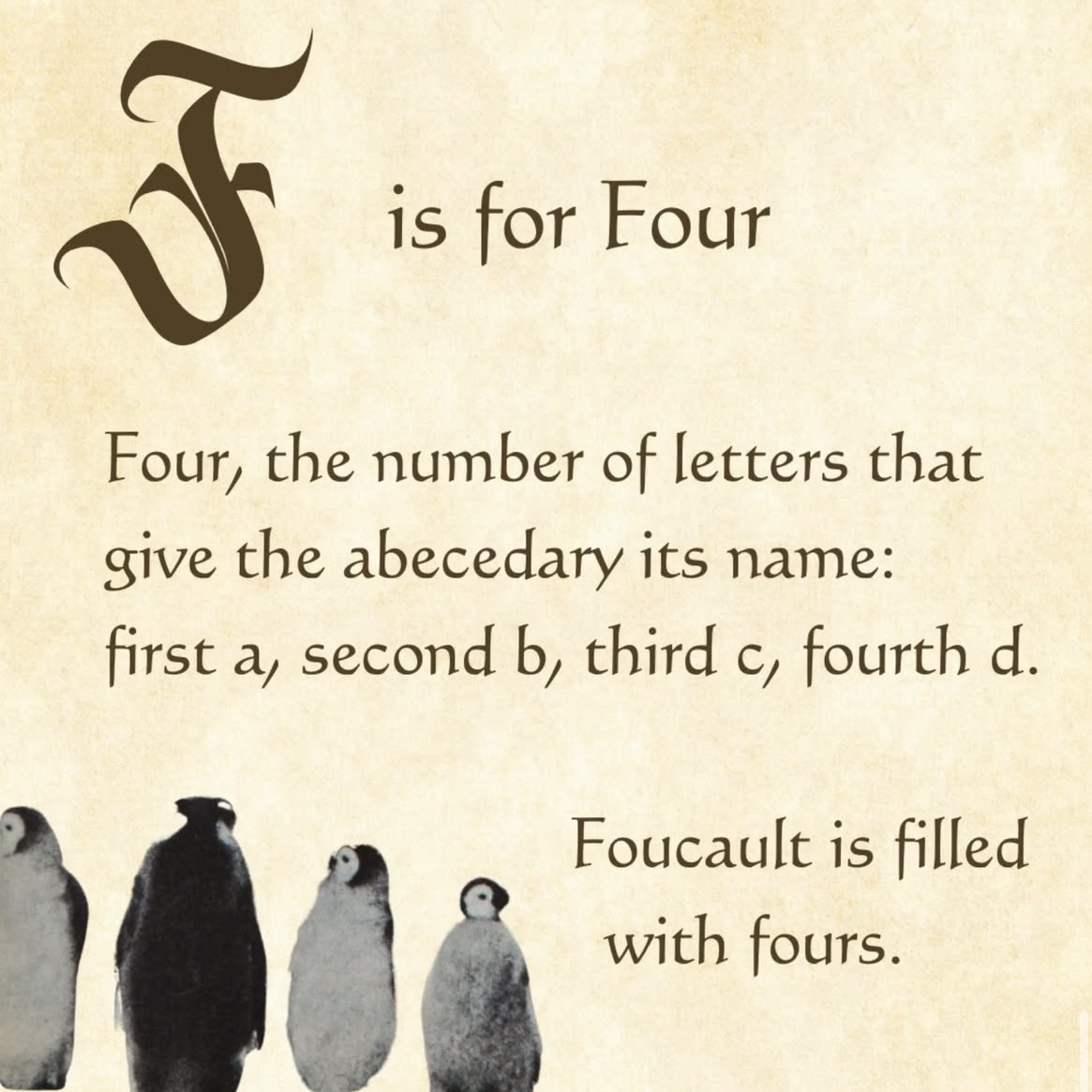
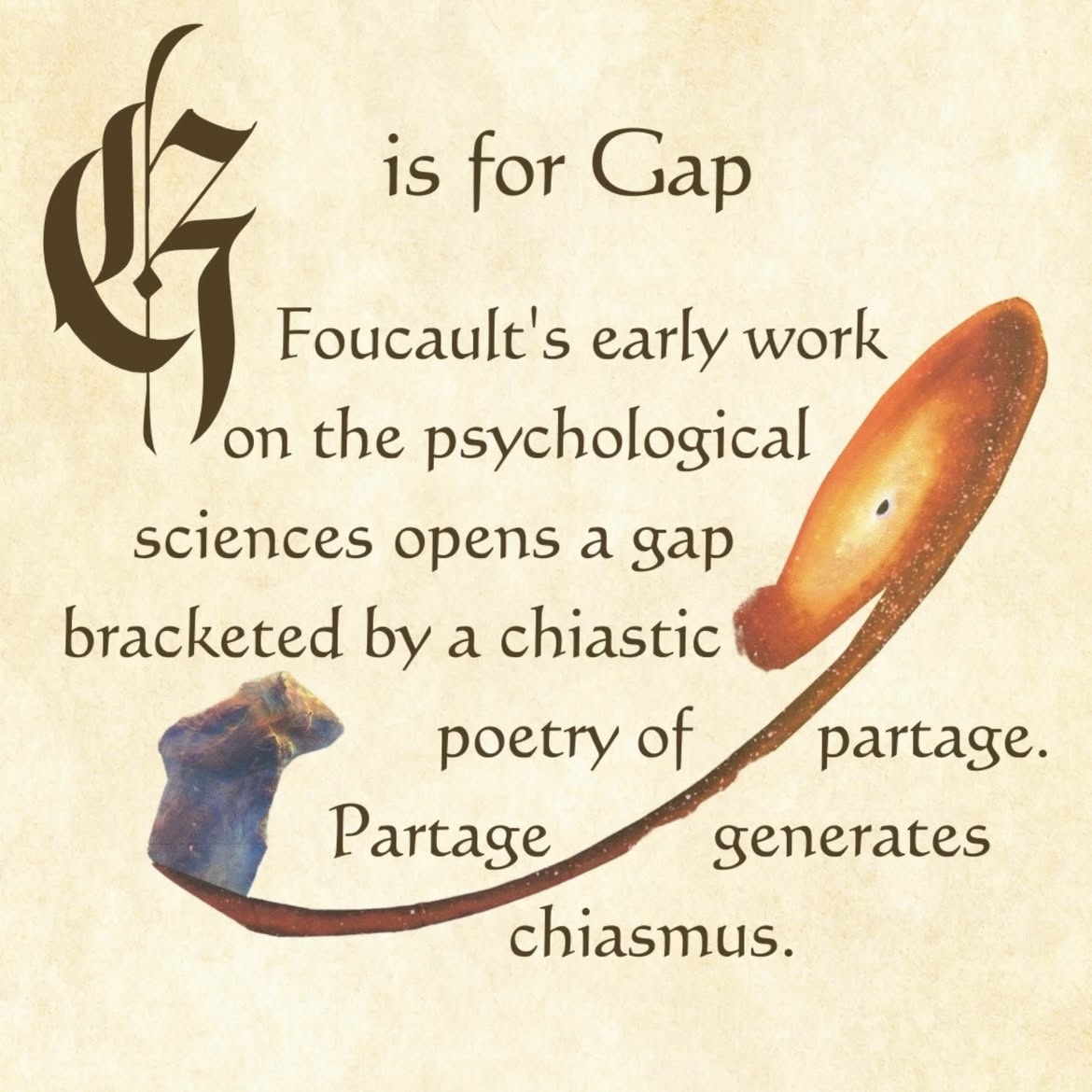
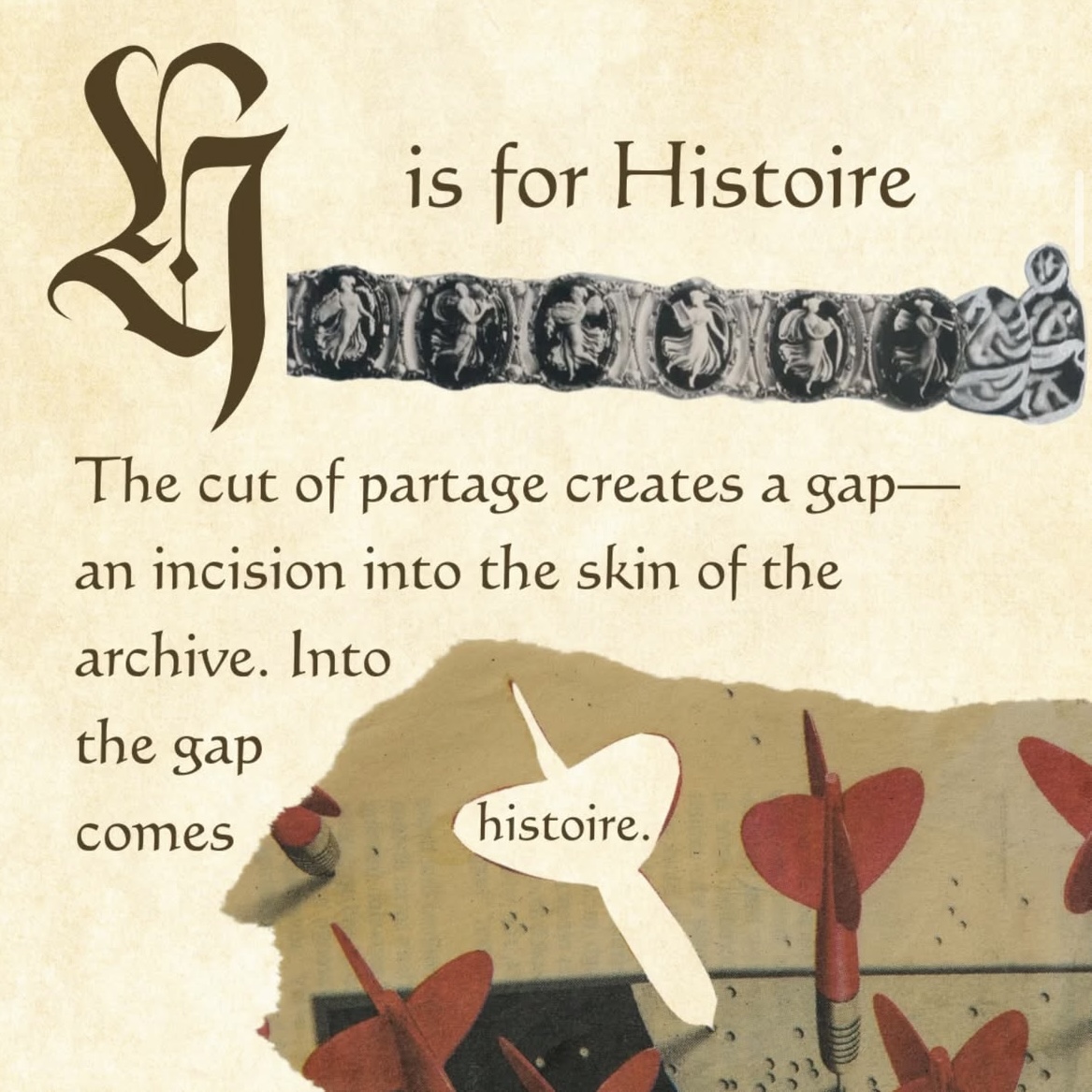
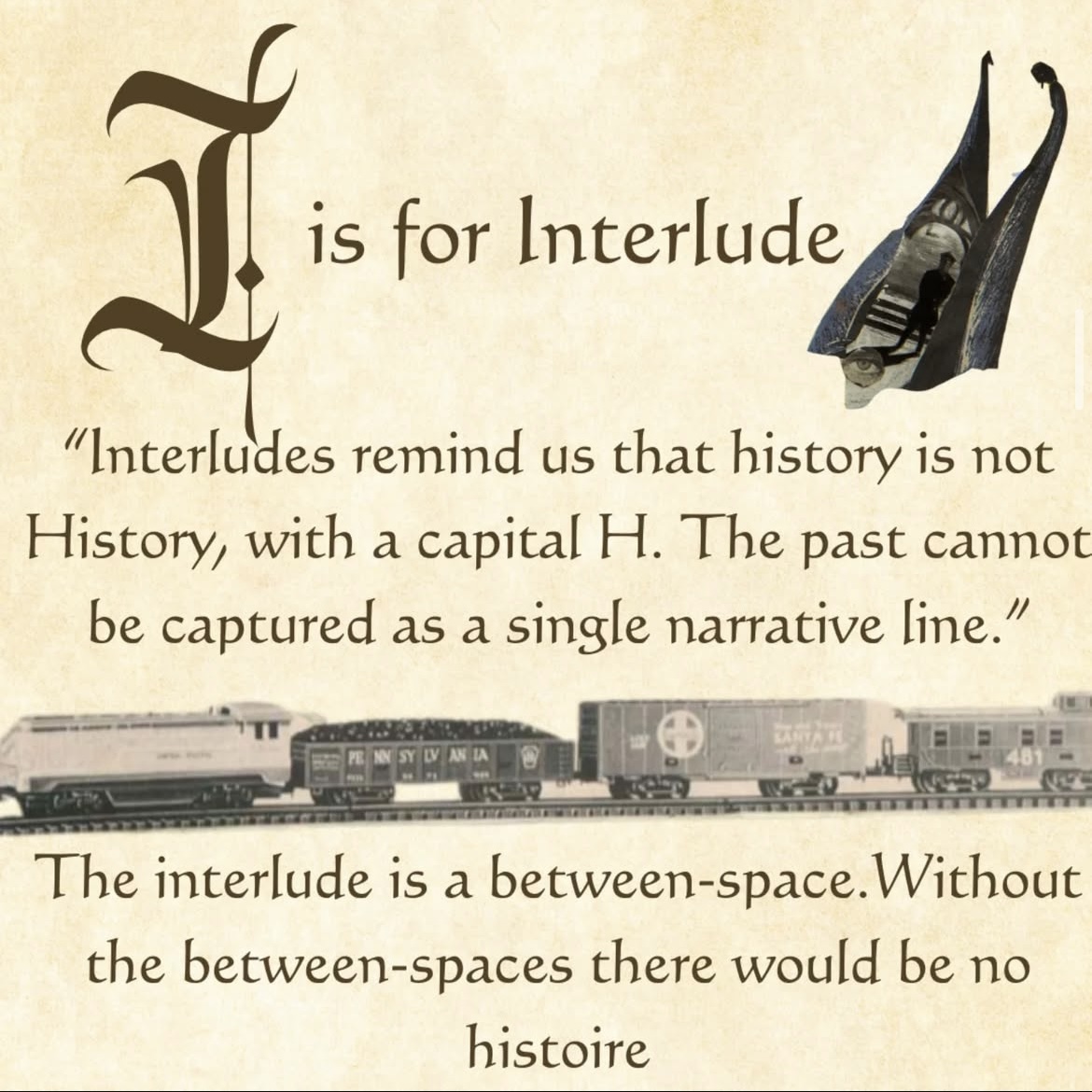
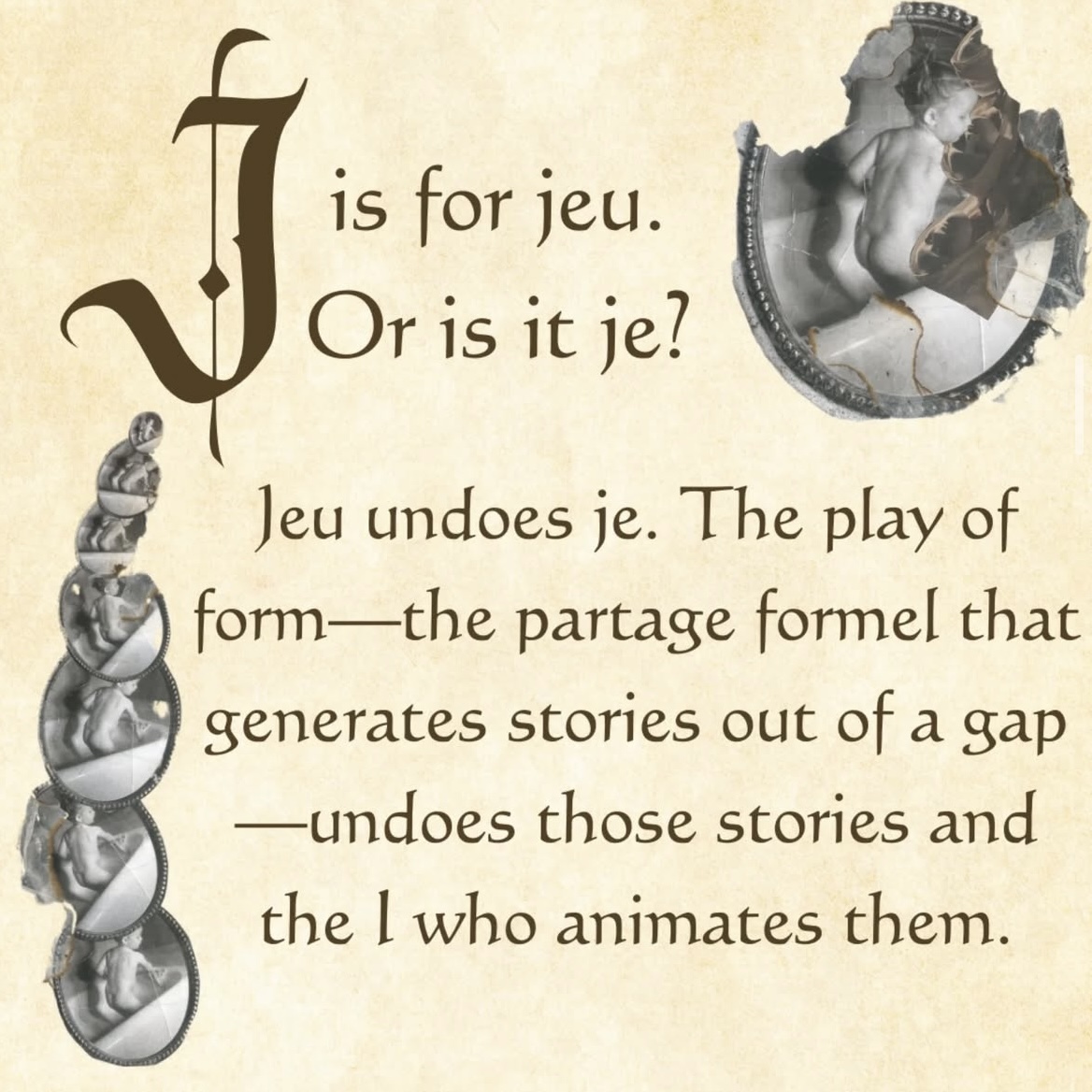
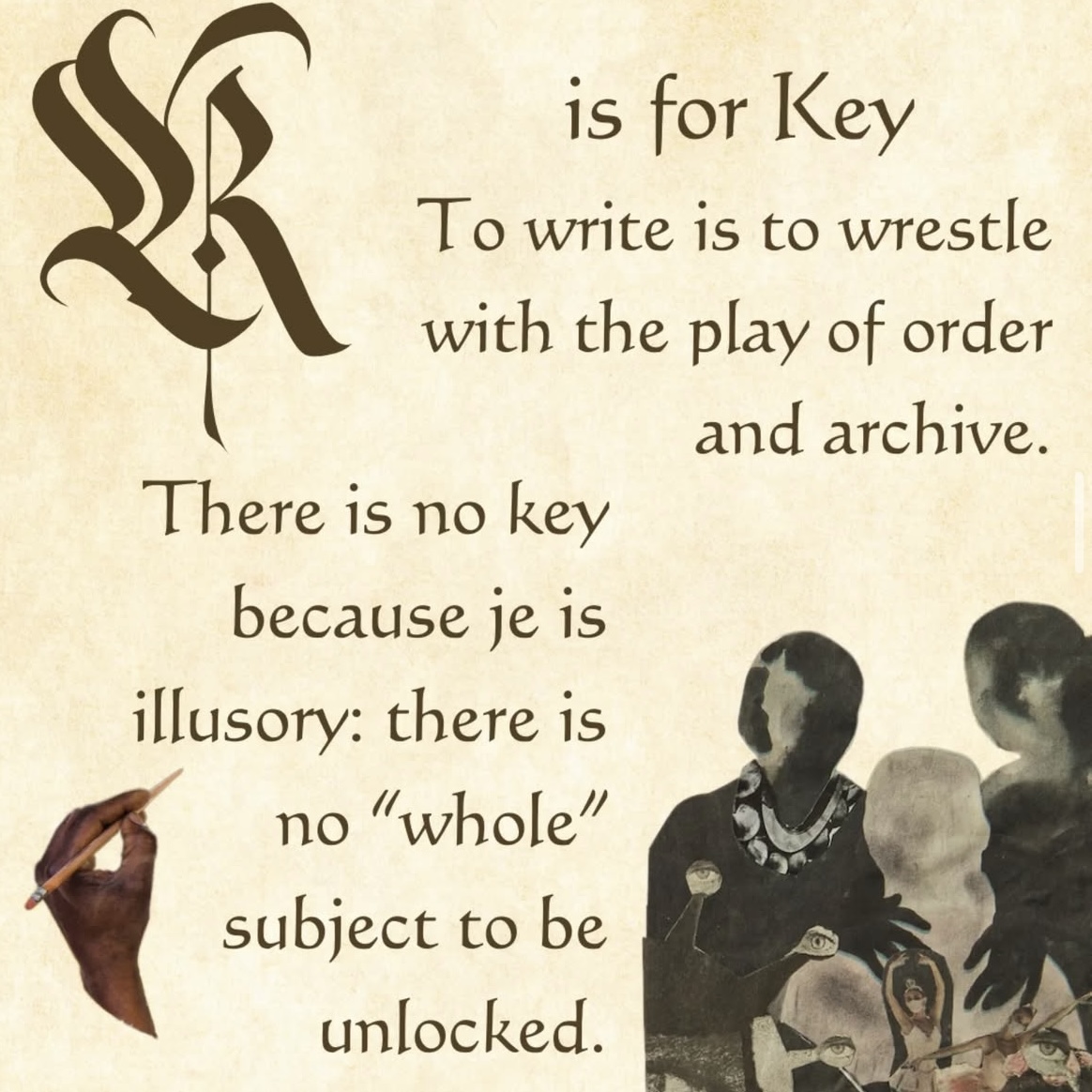
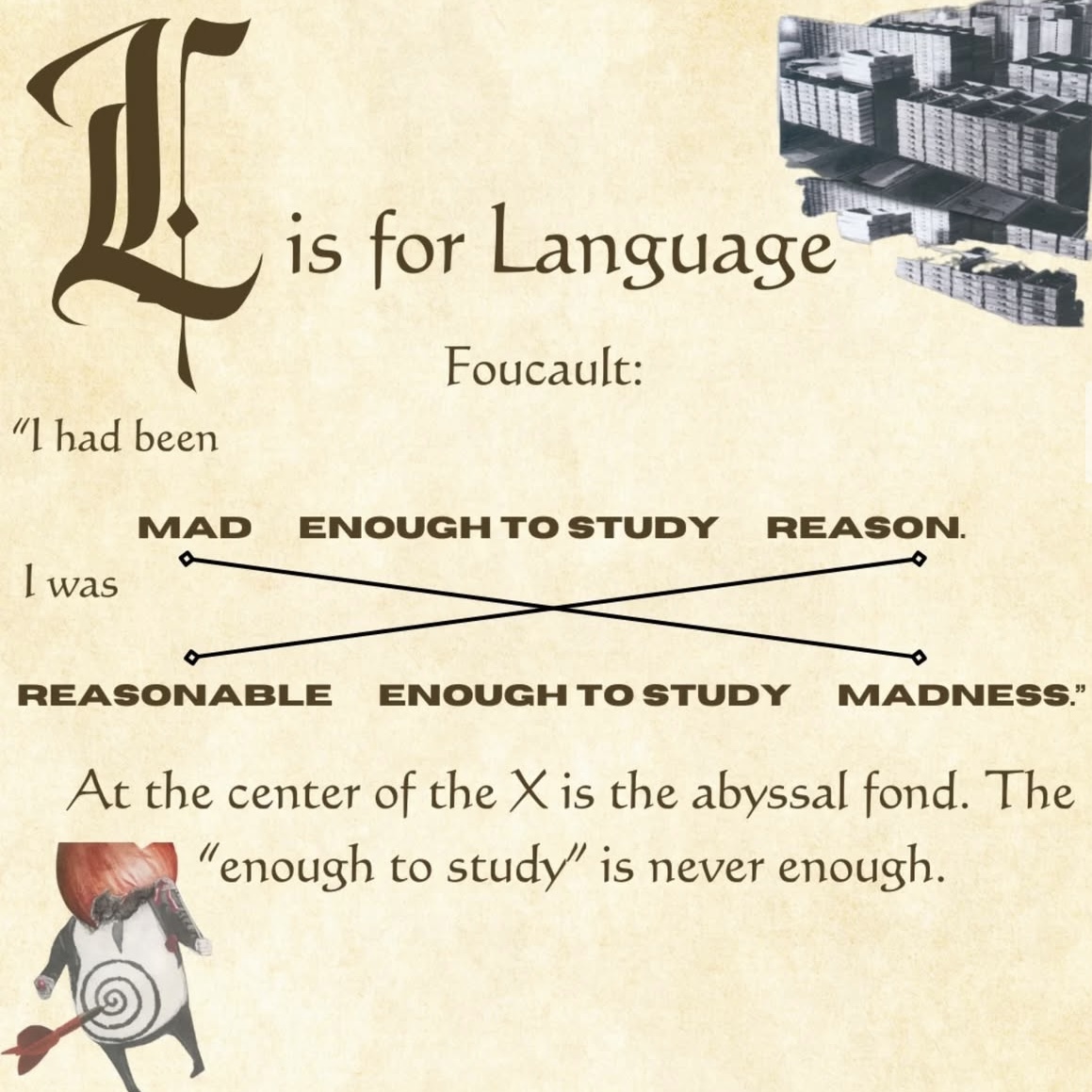

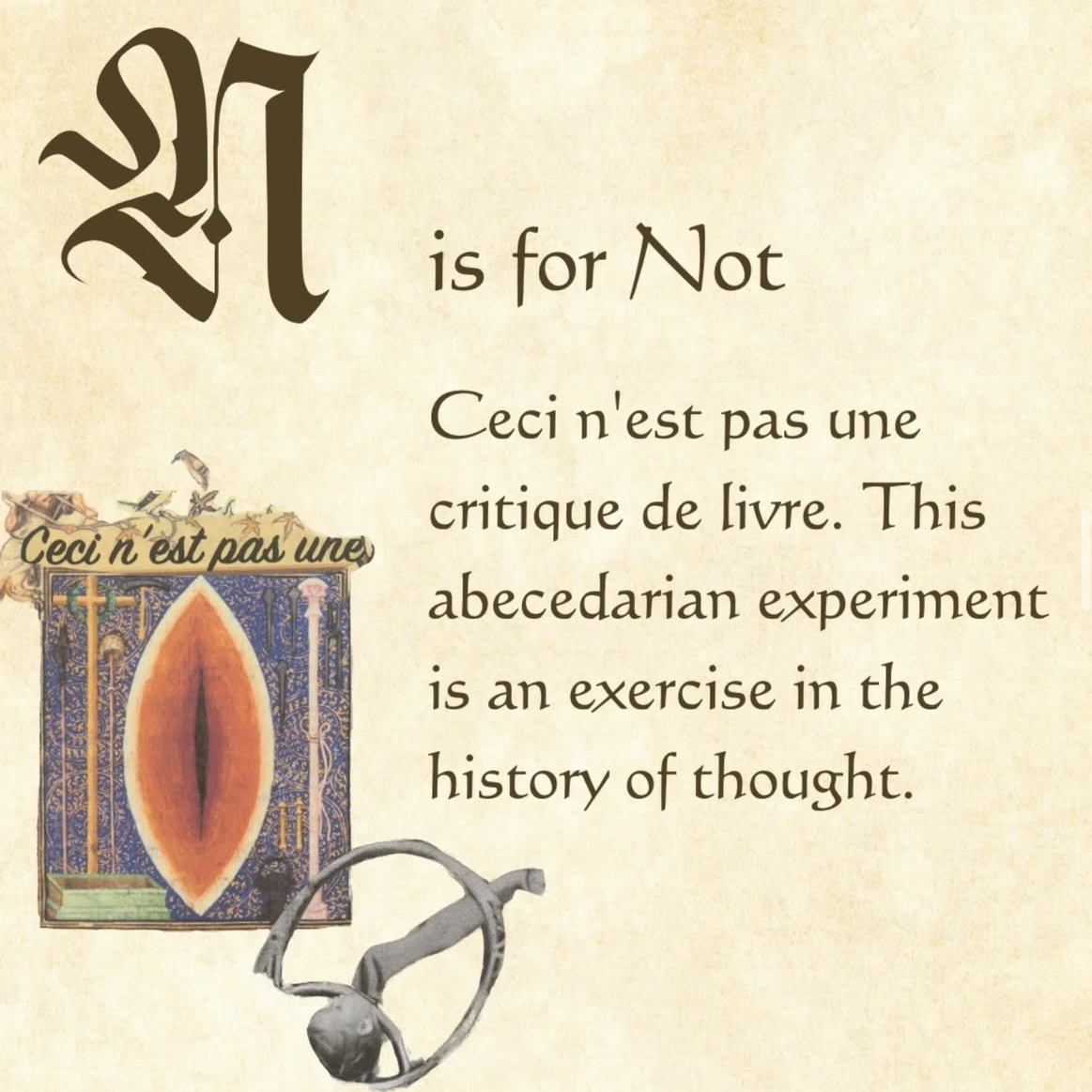
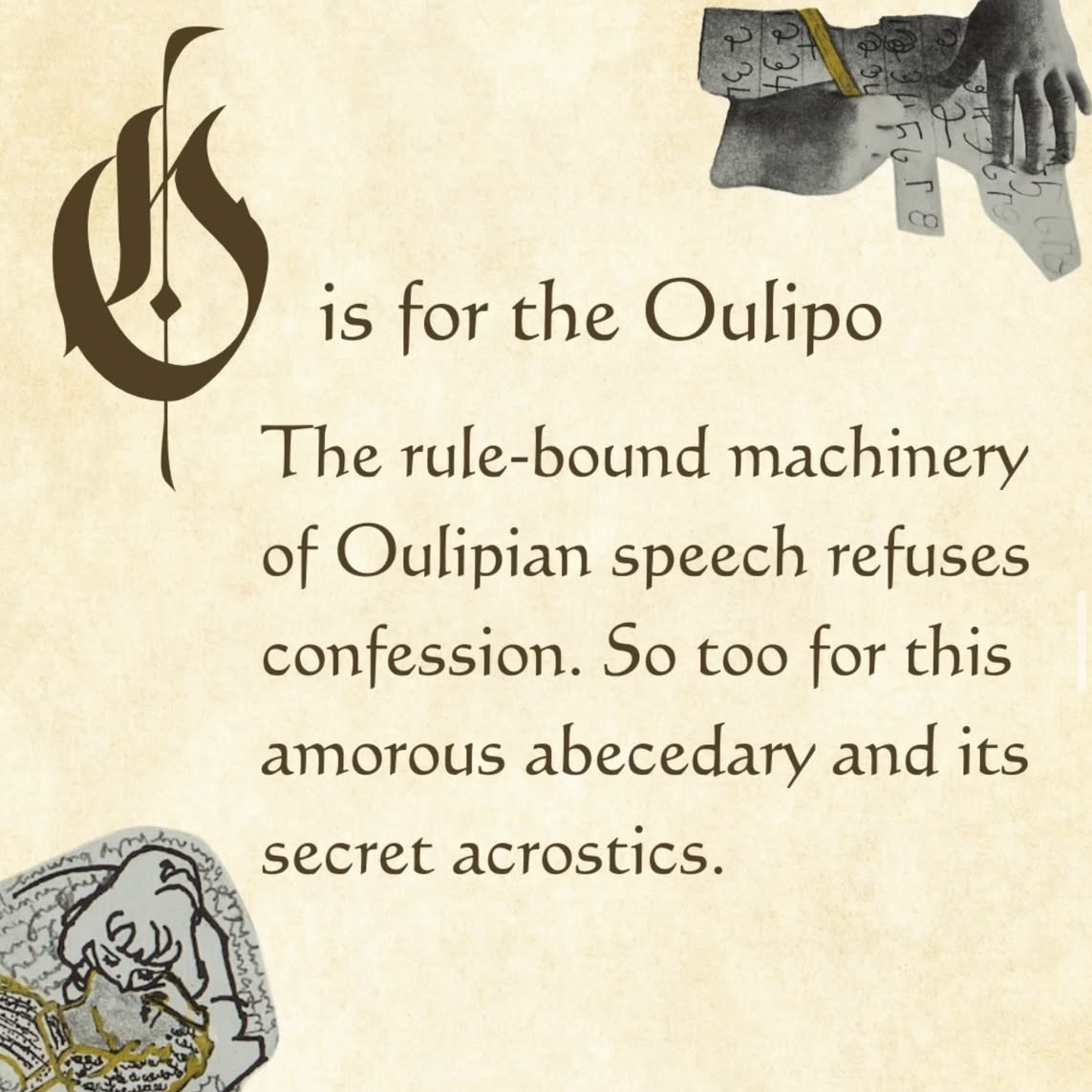
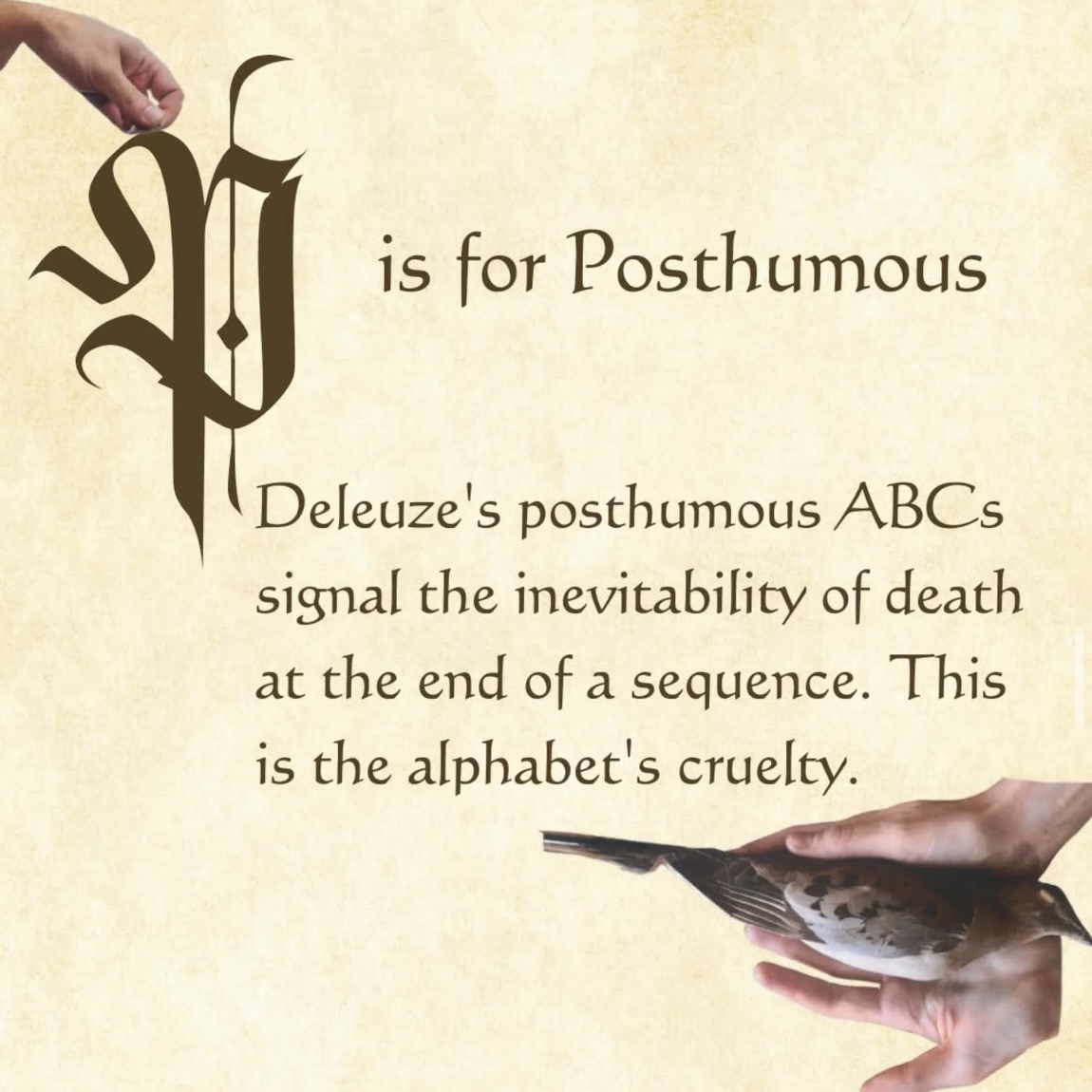
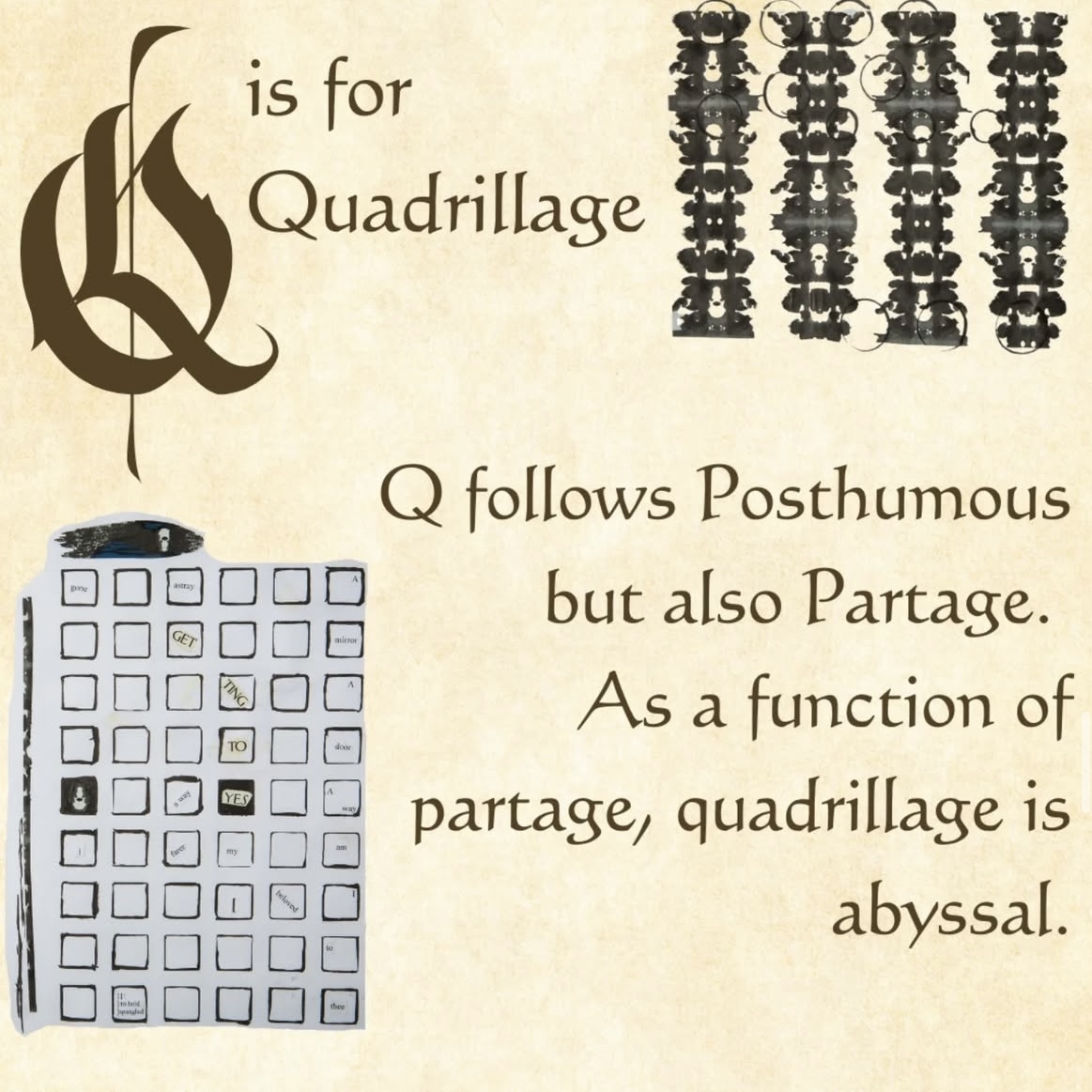
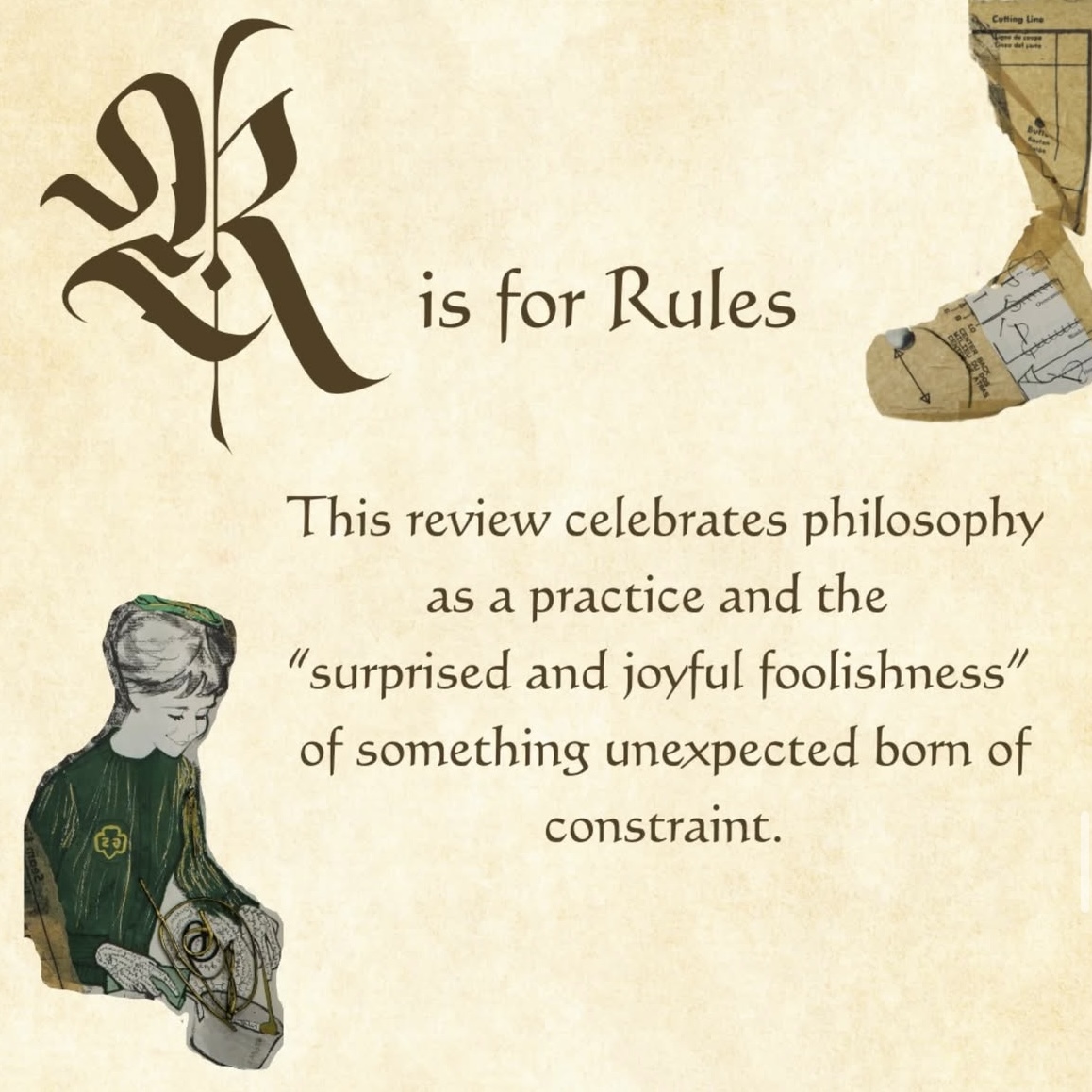
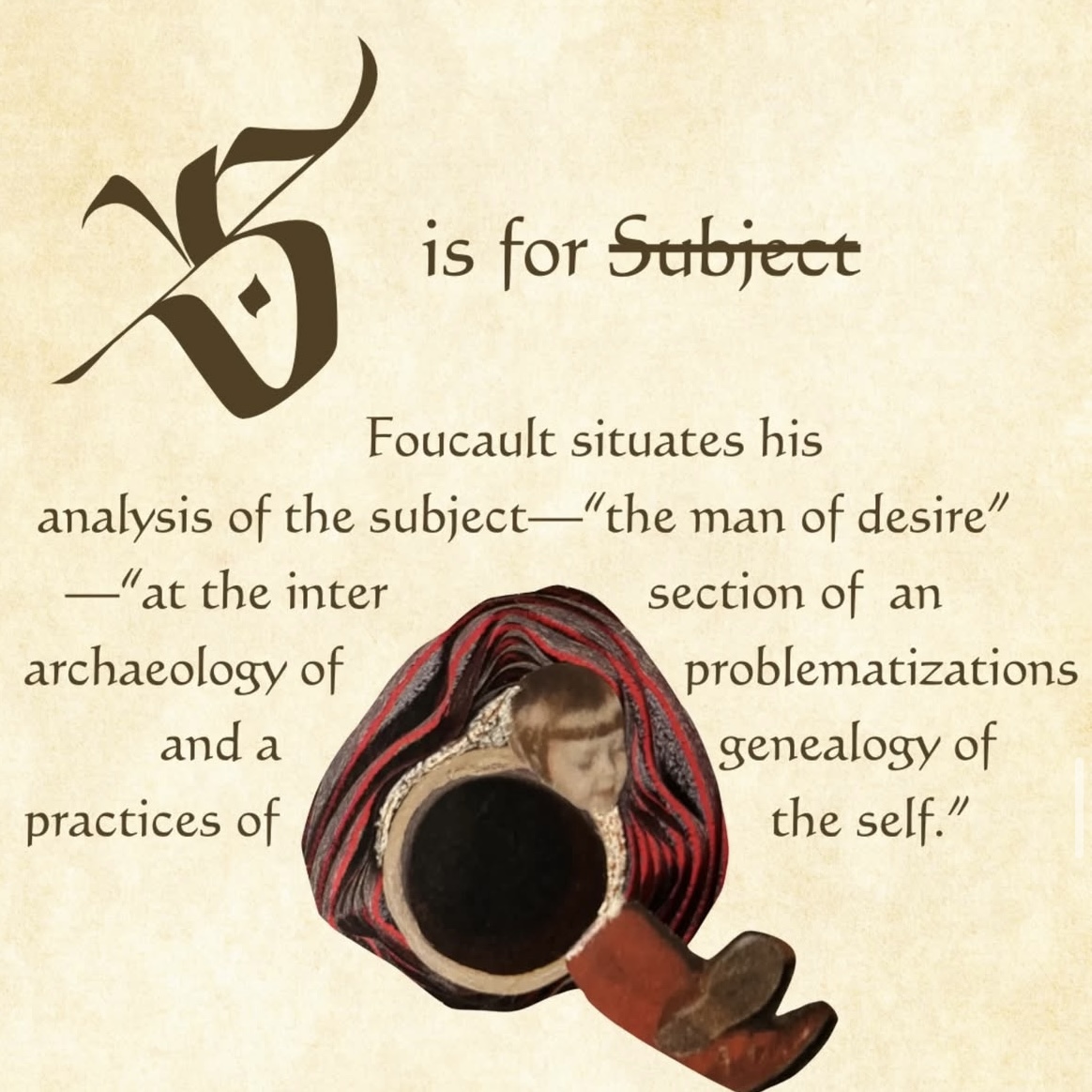
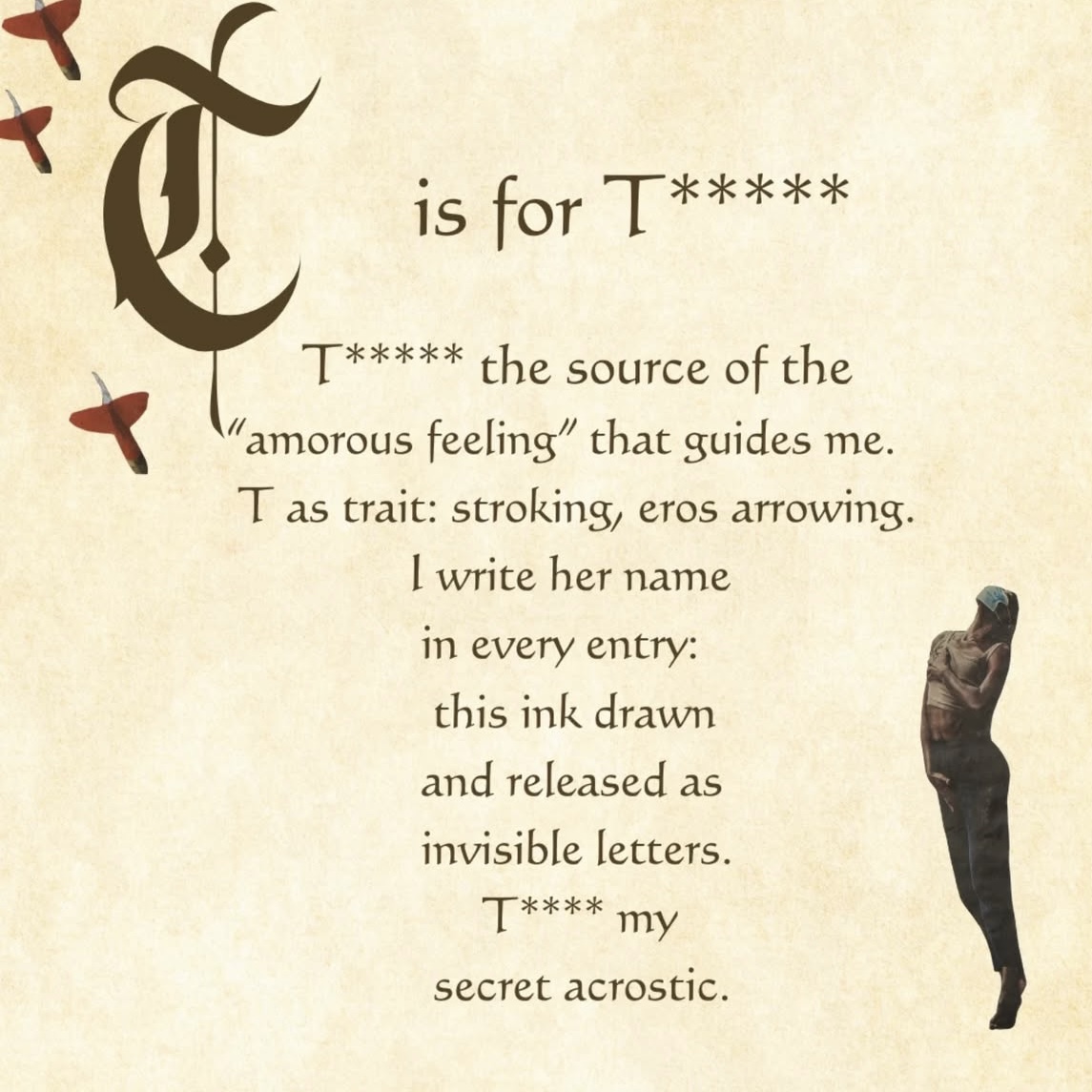
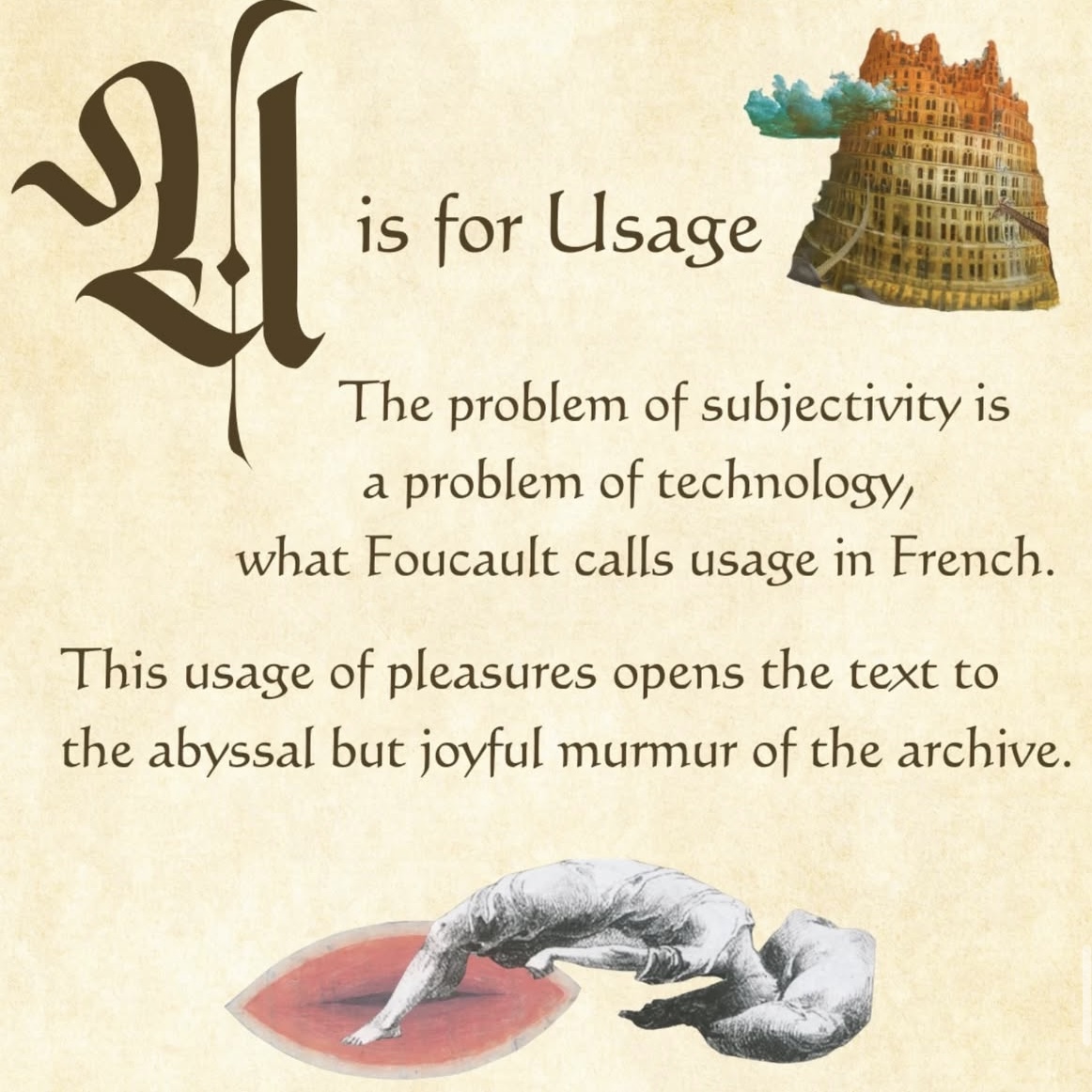
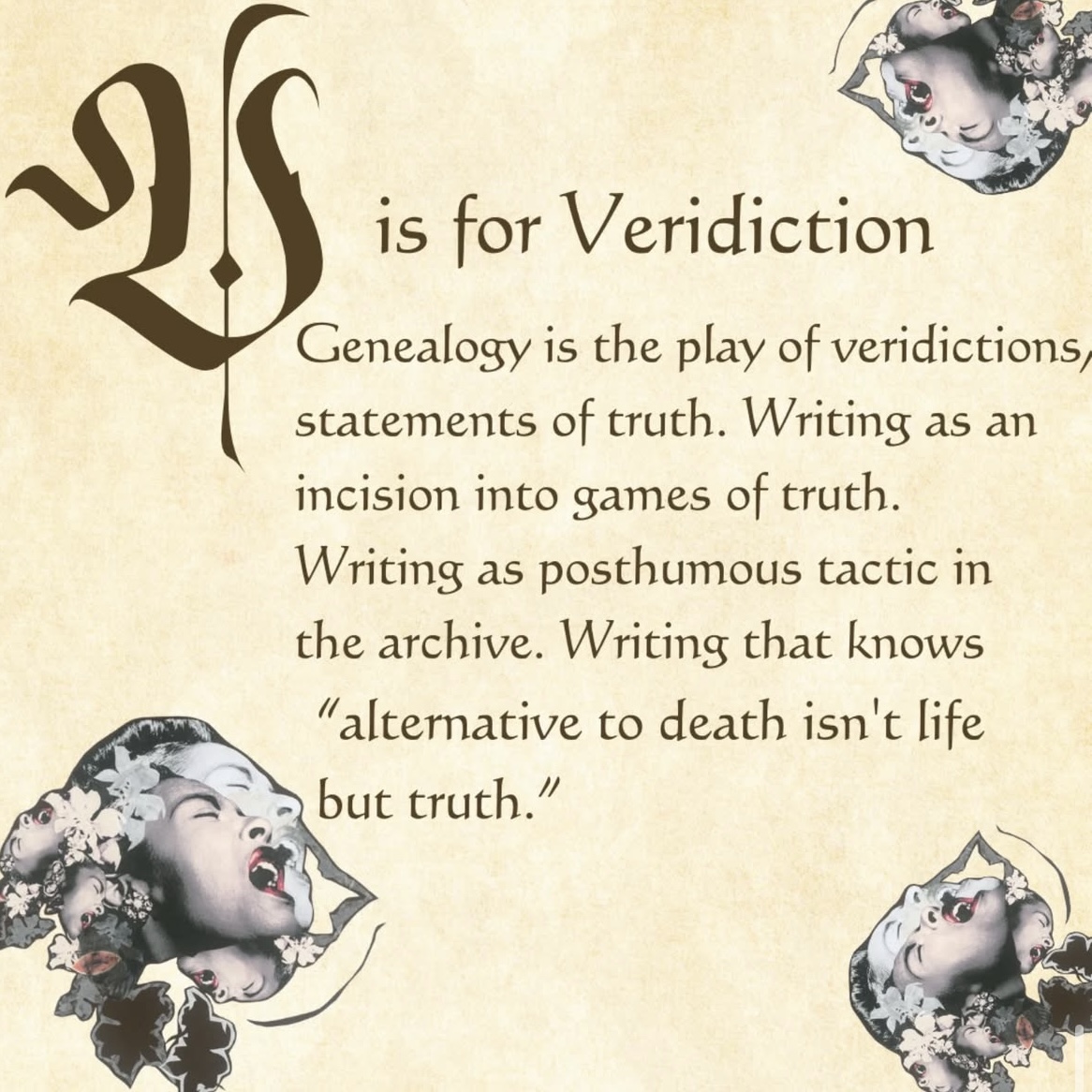
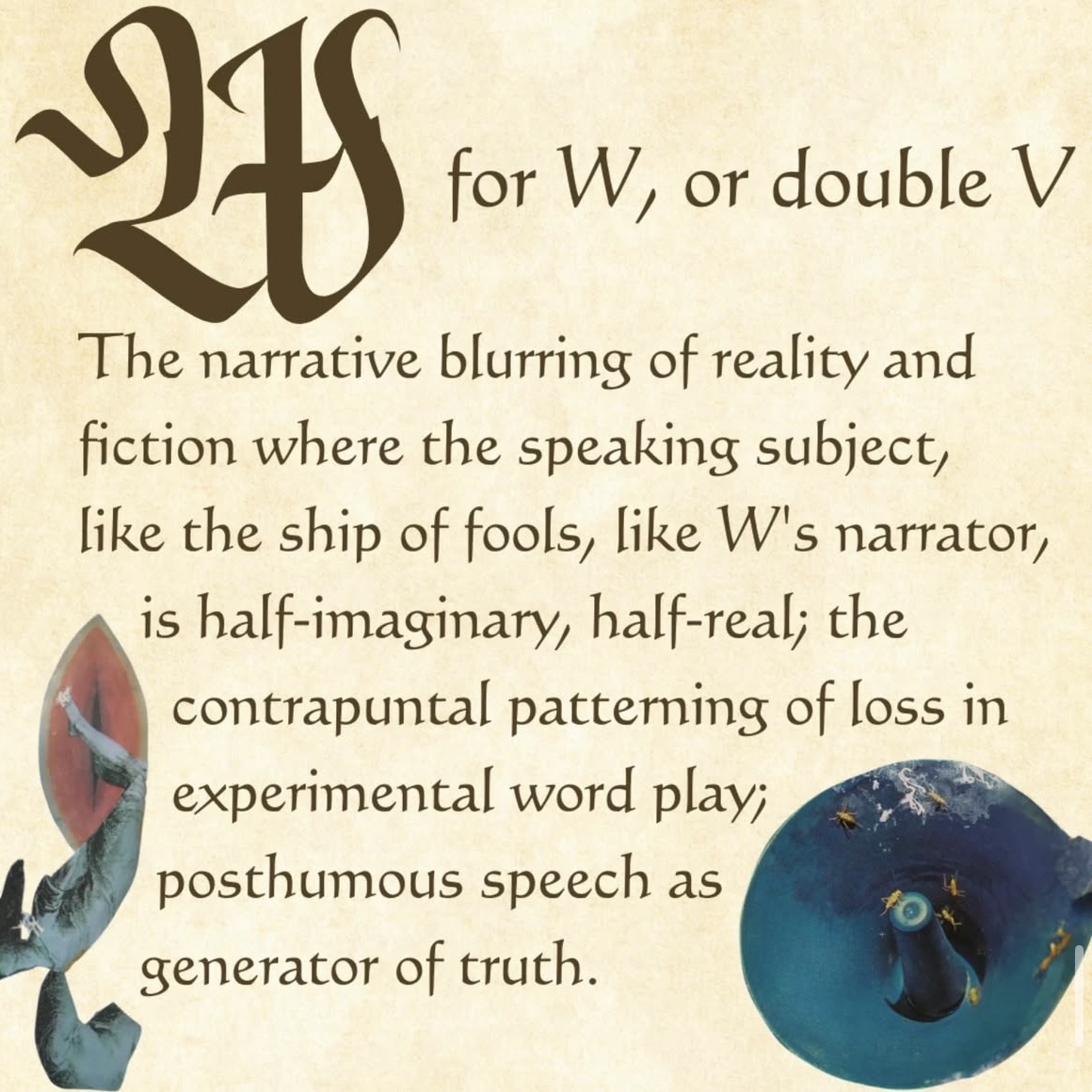
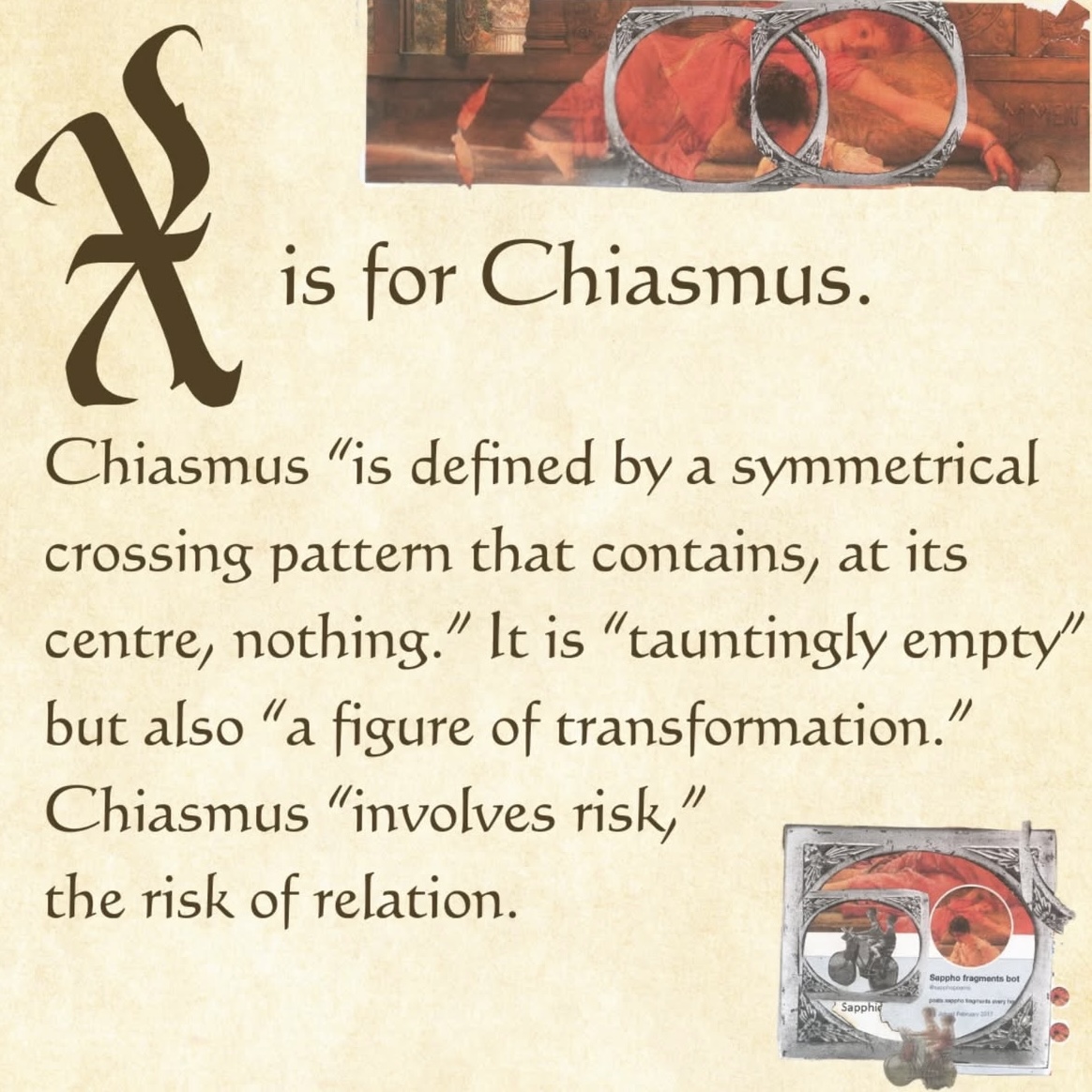
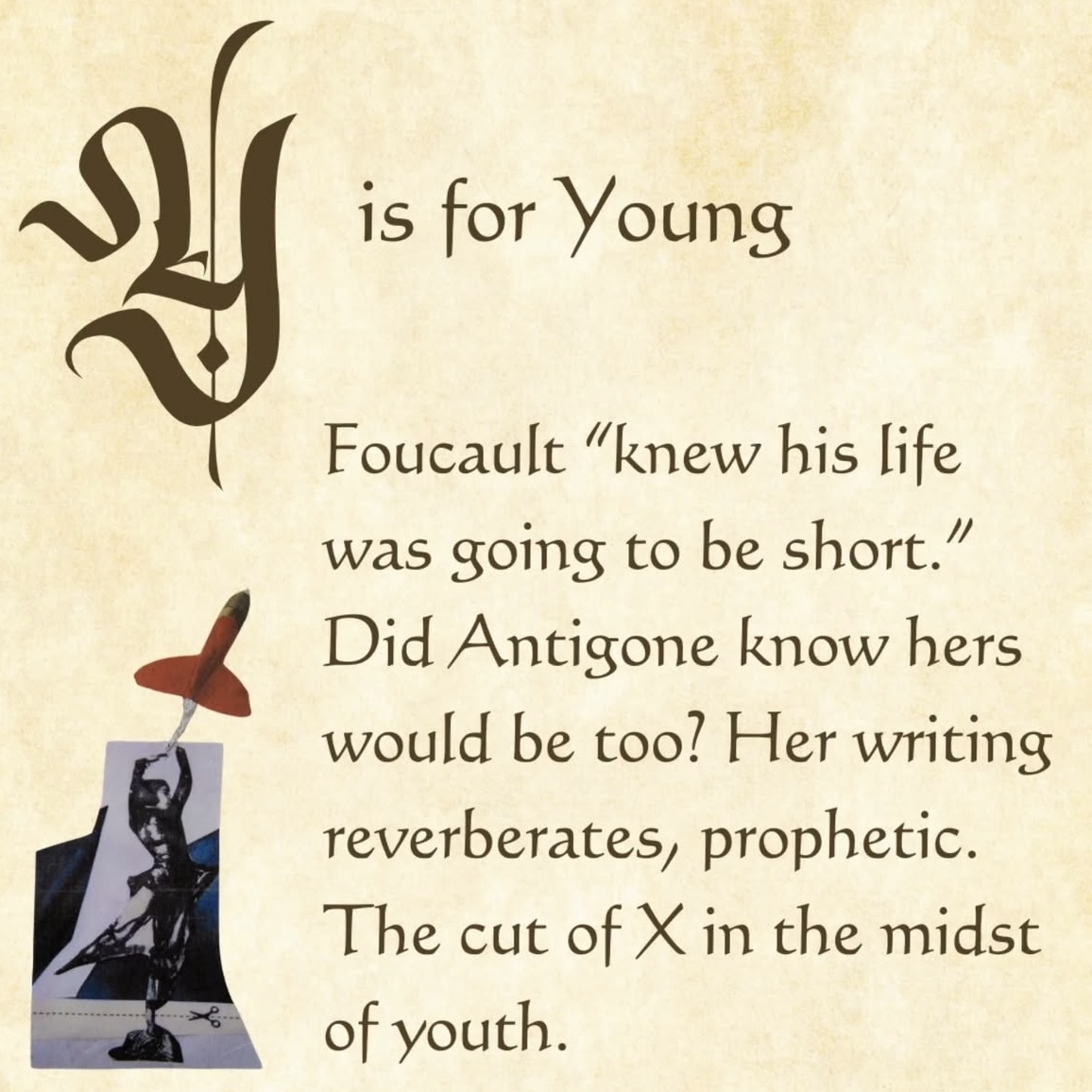
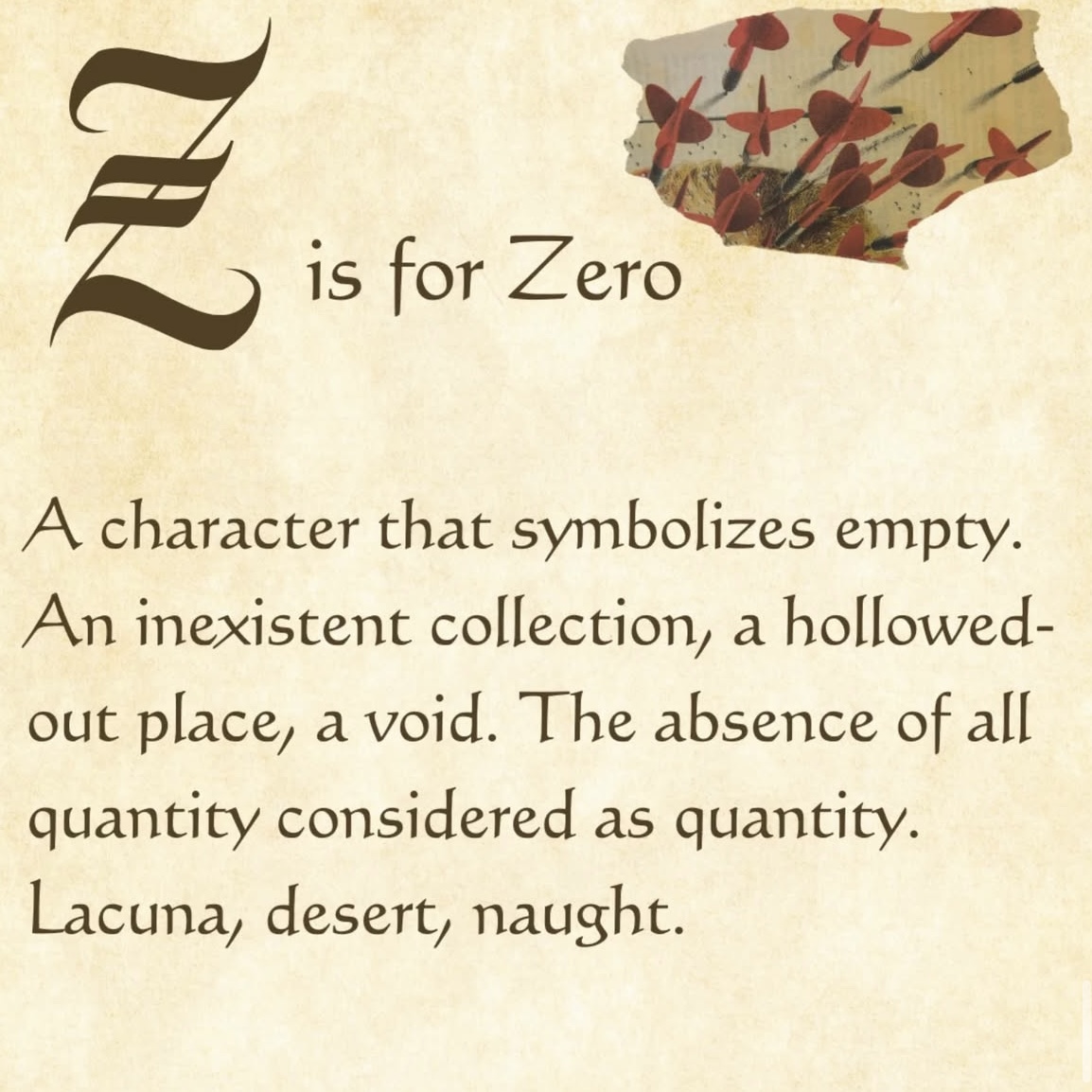
Exquisite Corpses (examples from [course])
Courses
Irigaray: Speculum of the Other Woman
Emory University, Fall 2024
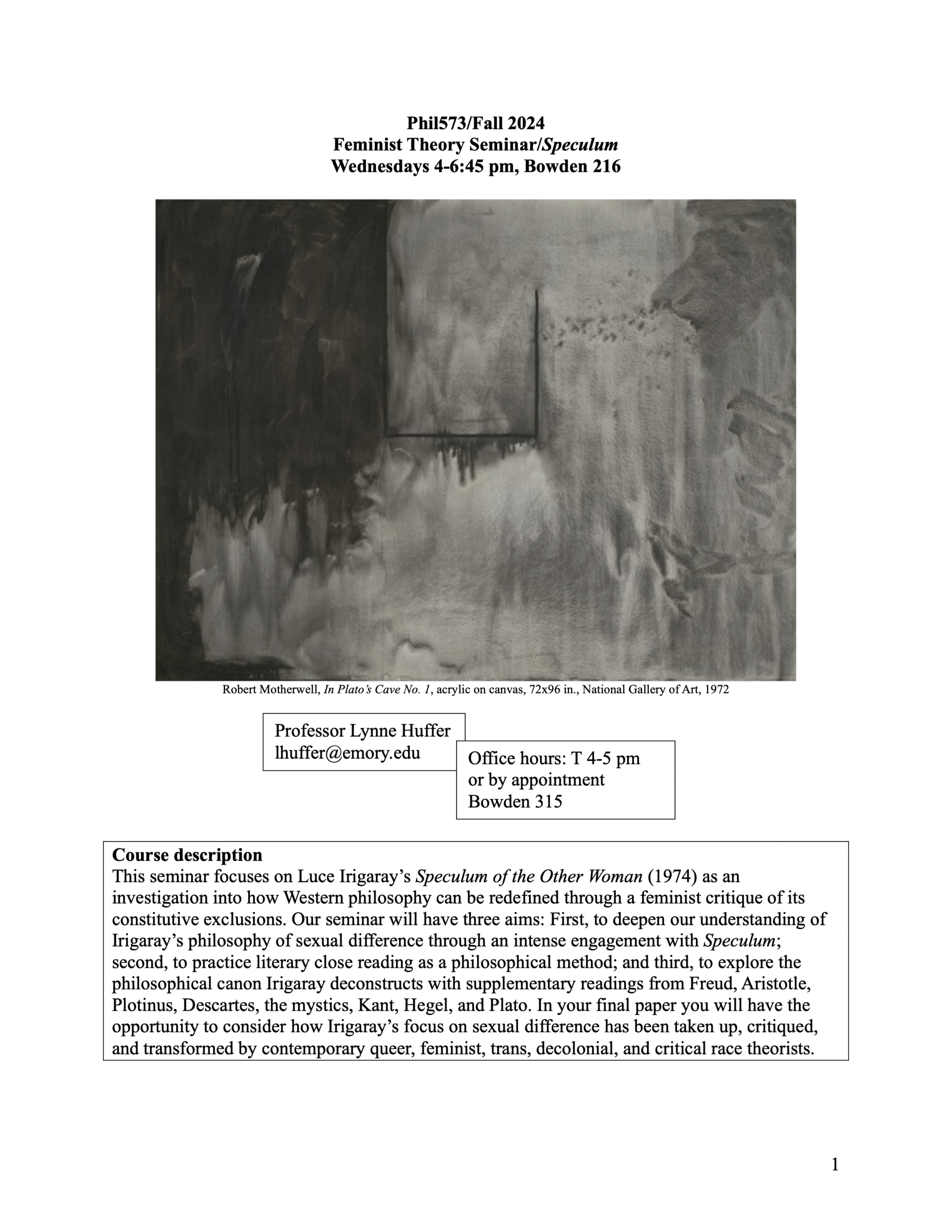
Course Description
This seminar focuses on Luce Irigaray’s Speculum of the Other Woman (1974) as an investigation into how Western philosophy can be redefined through a feminist critique of its constitutive exclusions. Our seminar will have three aims: First, to deepen our understanding of Irigaray’s philosophy of sexual difference through an intense engagement with Speculum; second, to practice literary close reading as a philosophical method; and third, to explore the philosophical canon Irigaray deconstructs with supplementary readings from Freud, Aristotle, Plotinus, Descartes, the mystics, Kant, Hegel, and Plato. In your final paper you will have the opportunity to consider how Irigaray’s focus on sexual difference has been taken up, critiqued, and transformed by contemporary queer, feminist, trans, decolonial, and critical race theorists.
Syllabus
Angela Davis
Emory University, Spring 2024 (Phil480)
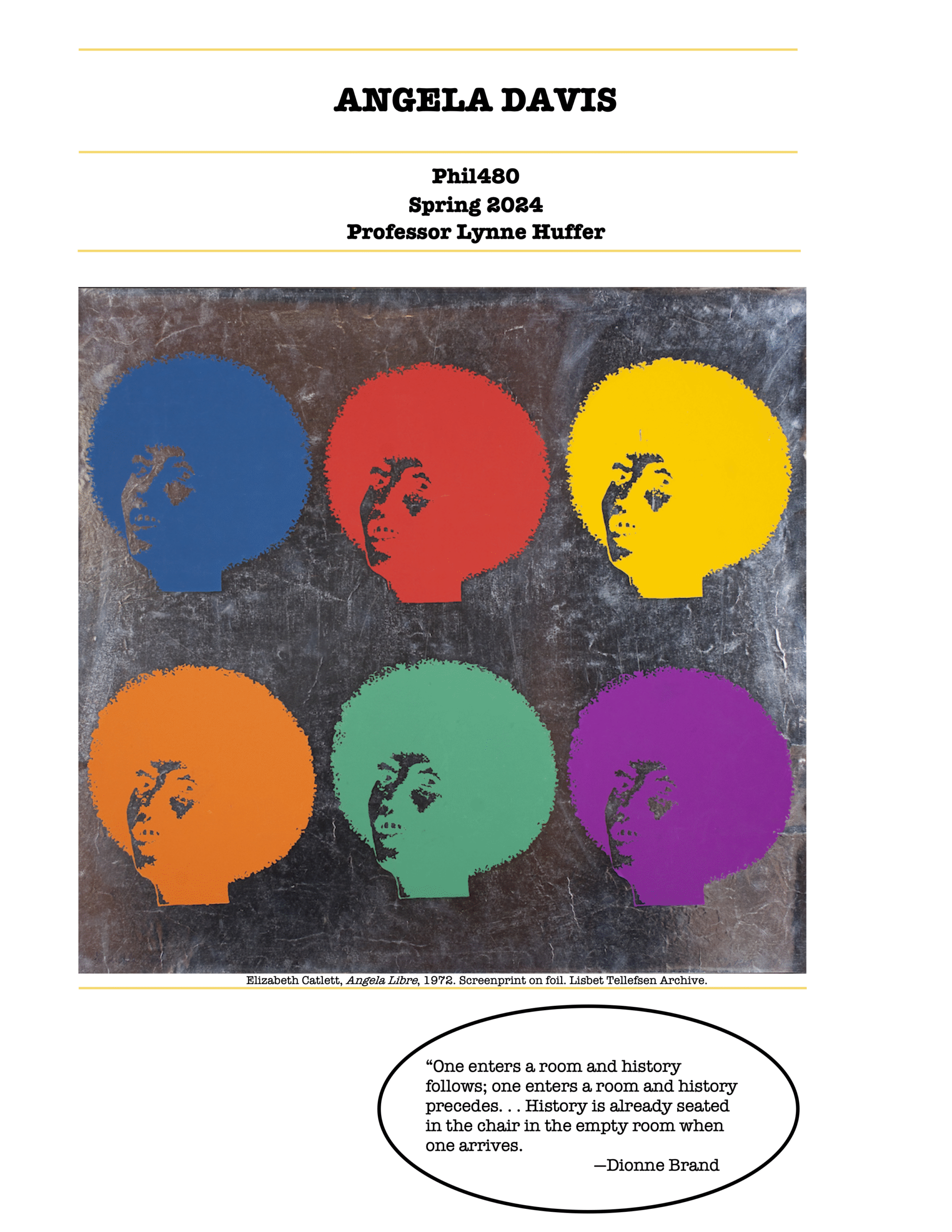
Course Description
This course follows the life and work of Angela Davis, a political activist, writer, and philosopher whose influence stretches from the late 1960s to today. Topics will include Davis’s involvement in the Black Power movements of the 1960 and 70s, Black feminism, the antiprison movement, Black Lives Matter, and transnational liberation struggles around the world. We will explore her writings in relation to their philosophical and historical underpinnings, including Foucault, Marx, Marcuse, Malcolm X, George Jackson, and others. The course will reflect on how Davis’s work offers a powerful lens for framing contemporary struggles around sexism, antiblack violence, colonialism, the effects of the climate crisis, and other pressing issues of our time. We will also engage philosophical questions about history and archives by exploring the online Angela Davis papers at Harvard and primary archival sources here at Emory. Students will be encouraged to draw on Davis’s writings as well as materials related to her very public life to think about their own philosophical and political commitments.
Syllabus
Student Project
by Jade Wu
Introduction to philosophy and literature
Emory University, Fall 2024 (Phil130)
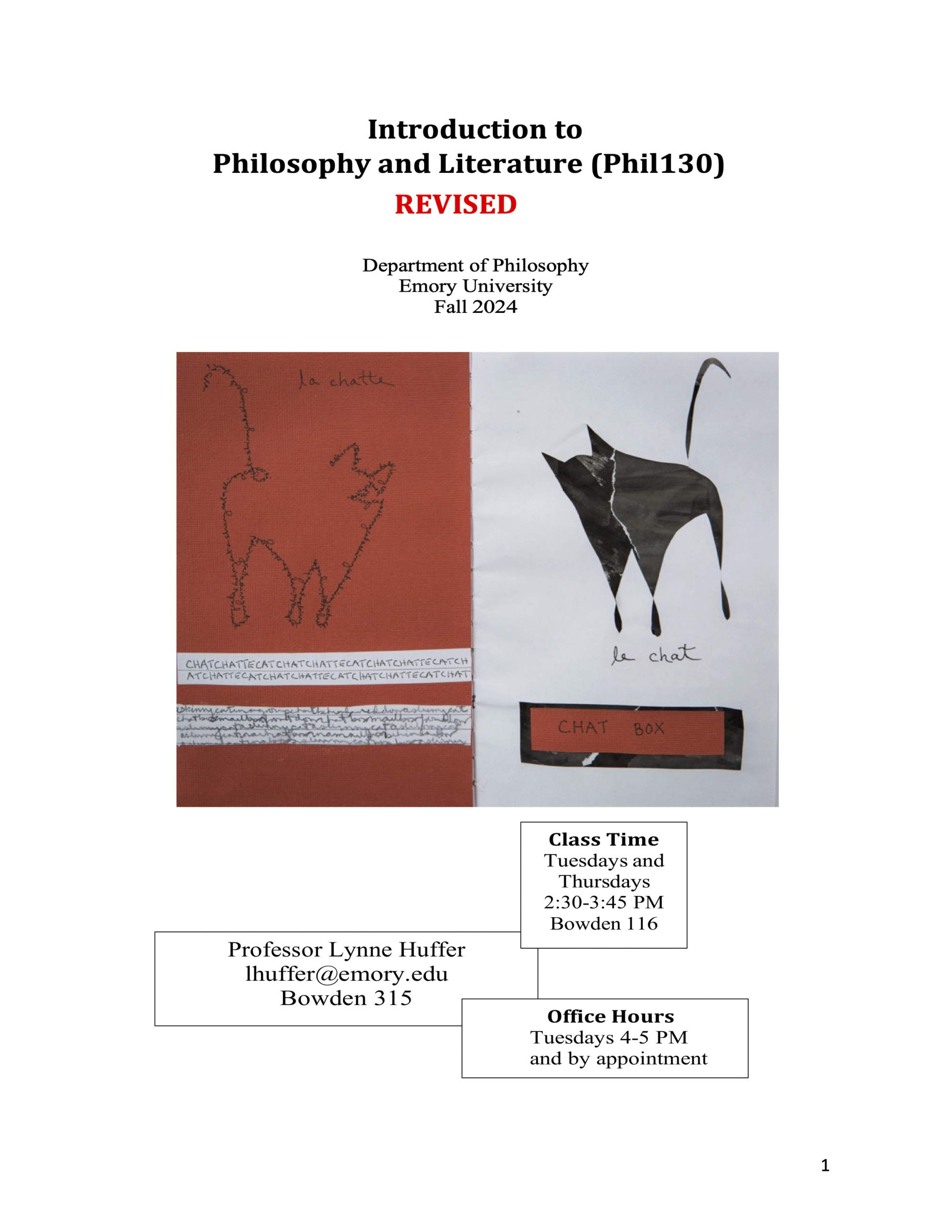
Course Description
What is philosophy? What is literature? How can we think the relation between them? We will frame our inquiry through the lens of intertextuality, a term coined in the 1960s by literary critic Julia Kristeva. Intertextuality sees every text as a mosaic composed of other texts. To speak, sing, or write is to borrow the words of others. In regarding poems, songs, novels, fables, stories, speeches, or philosophical writings as amalgams or mixtures derived from other sources, intertextuality puts into question assumptions about authorial intention and originality. We will hone our inquiry to explore the tensions and possibilities that arise from such a view. On the one hand, to conceive of a text as a collage of other texts opens up exciting new ways to approach epistemology, ethics, ontology, and politics, or familiar dualisms such as logic versus poetry or reason versus feeling. Intertextuality also exposes, in language, longstanding asymmetries of power. As bell hooks once put it, “This is the oppressor’s language yet I need it to talk to you.” We will pay particular attention to how gender, race, sexuality, and colonialism have informed philosophical and literary writings. We will sample a wide range of readings from within and against the Western tradition. A major focus of the course will be writings that experiment with form to challenge traditional modes of thought. In-class and out-of-class exercises will allow course participants to practice and develop their own experiments in writing and speaking as philosopher-poets.
Syllabus
Foucault
Emory University, Fall 2023 (Phil789/CPLT751/WGS754)
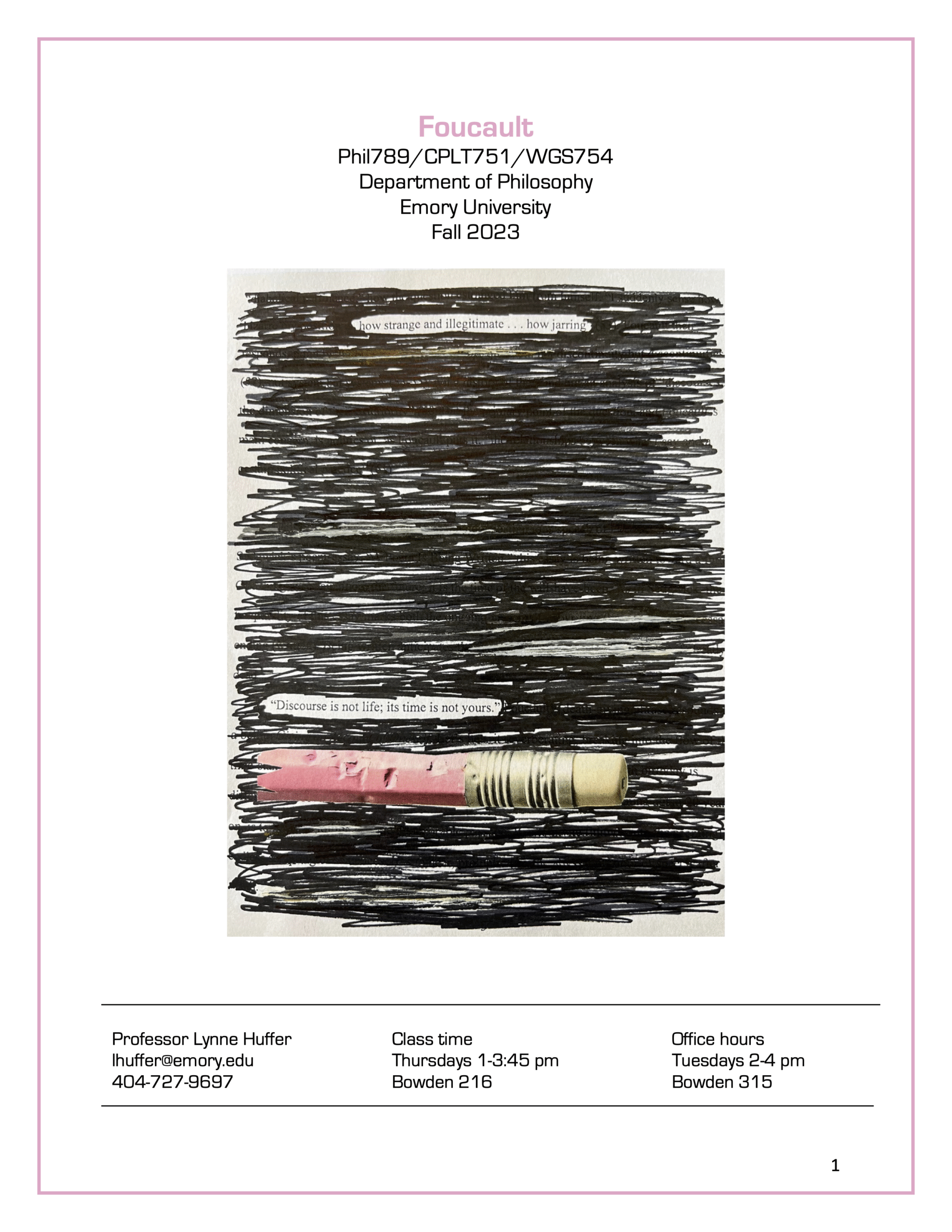
Course Description
This course will explore the writings of the French philosopher Michel Foucault. We will focus on two major books: the first volume of his four-volume History of Sexuality (The Will to Knowledge, 1976) and History of Madness (1961), one of Foucault’s least read books. We will examine five important essays: “Lives of Infamous Men” (1977), “Madness, the Absence of an Oeuvre” (1964), “Thought of the Outside” (1966), “Nietzsche, Genealogy, History” (1971), and “Preface to History of Sexuality Volume Two.” In line with Foucault’s conception of recursive time, we will circle back to History of Sexuality Volume One and reread it in light of our reading. Our in-depth approach to one slice of Foucault’s oeuvre will sharpen our understanding of his analysis of sexuality in the modern era, his critique of the repressive hypothesis, and the experimental quality of Foucault’s work. We will hone our skills as close readers by focusing on specific passages in Foucault’s work. We will hone our skills as close readers by focusing on specific passages in Foucault’s work. While the course’s primary purpose is to provide an opportunity to carefully read some of Foucault’s work in depth, the course also provides a solid foundation for assessing how his work has influenced queer theory, as well as how many of his readers have fallen into the traps he set for us.
Syllabus
The Ethics of Extinction:
Anthropocene Fragments
Interdisciplinary Research Seminar (CHIIRS)
Emory University, 2021-2022 (Phil789/CPLT751/WGS754)
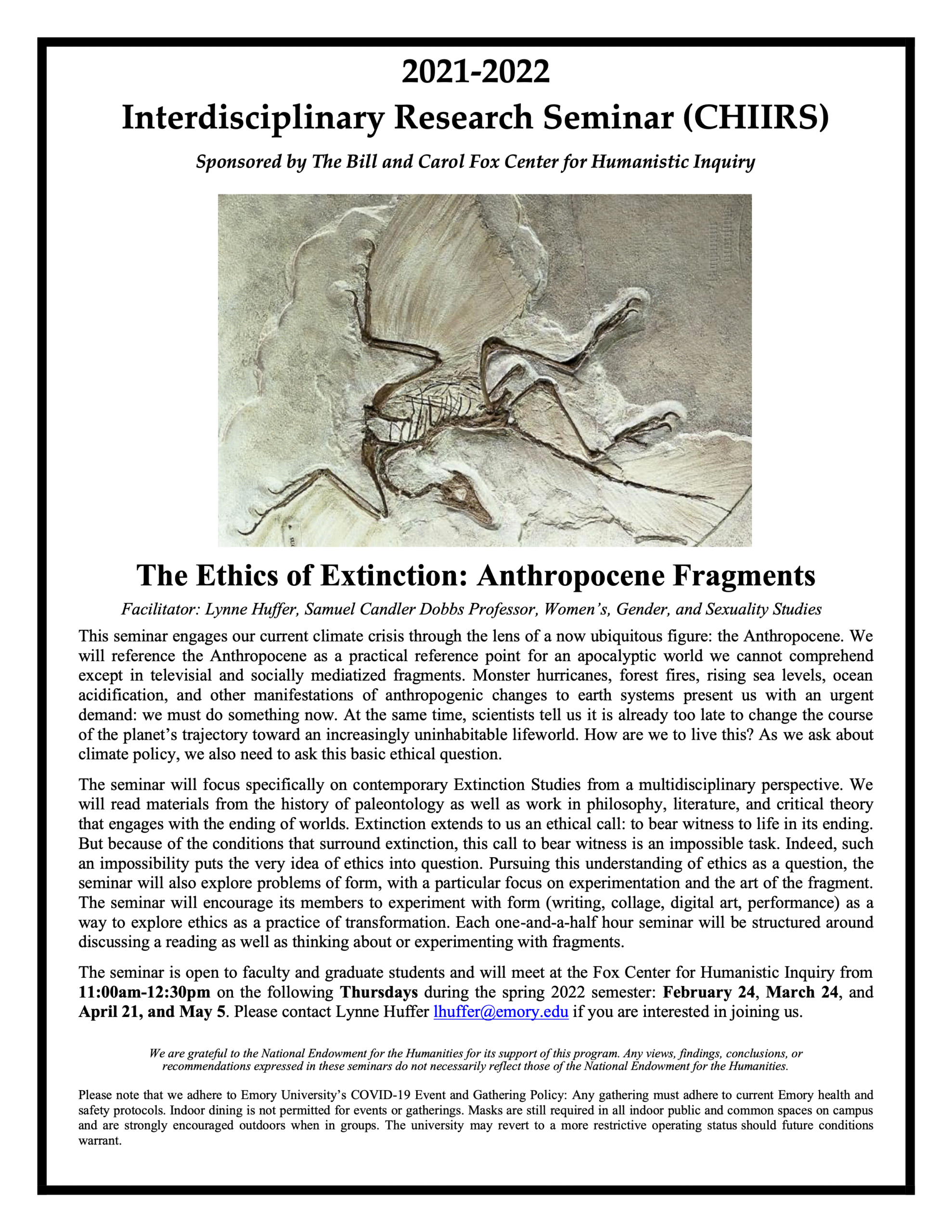
Course Description
This seminar engages our current climate crisis through the lens of a now ubiquitous figure: the Anthropocene. We will reference the Anthropocene as a practical reference point for an apocalyptic world we cannot comprehend except in televisial and socially mediatized fragments. Monster hurricanes, forest fires, rising sea levels, ocean acidification, and other manifestations of anthropogenic changes to earth systems present us with an urgent demand: we must do something now. At the same time, scientists tell us it is already too late to change the course of the planet’s trajectory toward an increasingly uninhabitable lifeworld. How are we to live this? As we ask about climate policy, we also need to ask this basic ethical question.
The seminar will focus specifically on contemporary Extinction Studies from a multidisciplinary perspective. We will read materials from the history of paleontology as well as work in philosophy, literature, and critical theory that engages with the ending of worlds. Extinction extends to us an ethical call: to bear witness to life in its ending. But because of the conditions that surround extinction, this call to bear witness is an impossible task. Indeed, such an impossibility puts the very idea of ethics into question. Pursuing this understanding of ethics as a question, the seminar will also explore problems of form, with a particular focus on experimentation and the art of the fragment. The seminar will encourage its members to experiment with form (writing, collage, digital art, performance) as a way to explore ethics as a practice of transformation. Each one-and-a-half hour seminar will be structured around discussing a reading as well as thinking about or experimenting with fragments.
